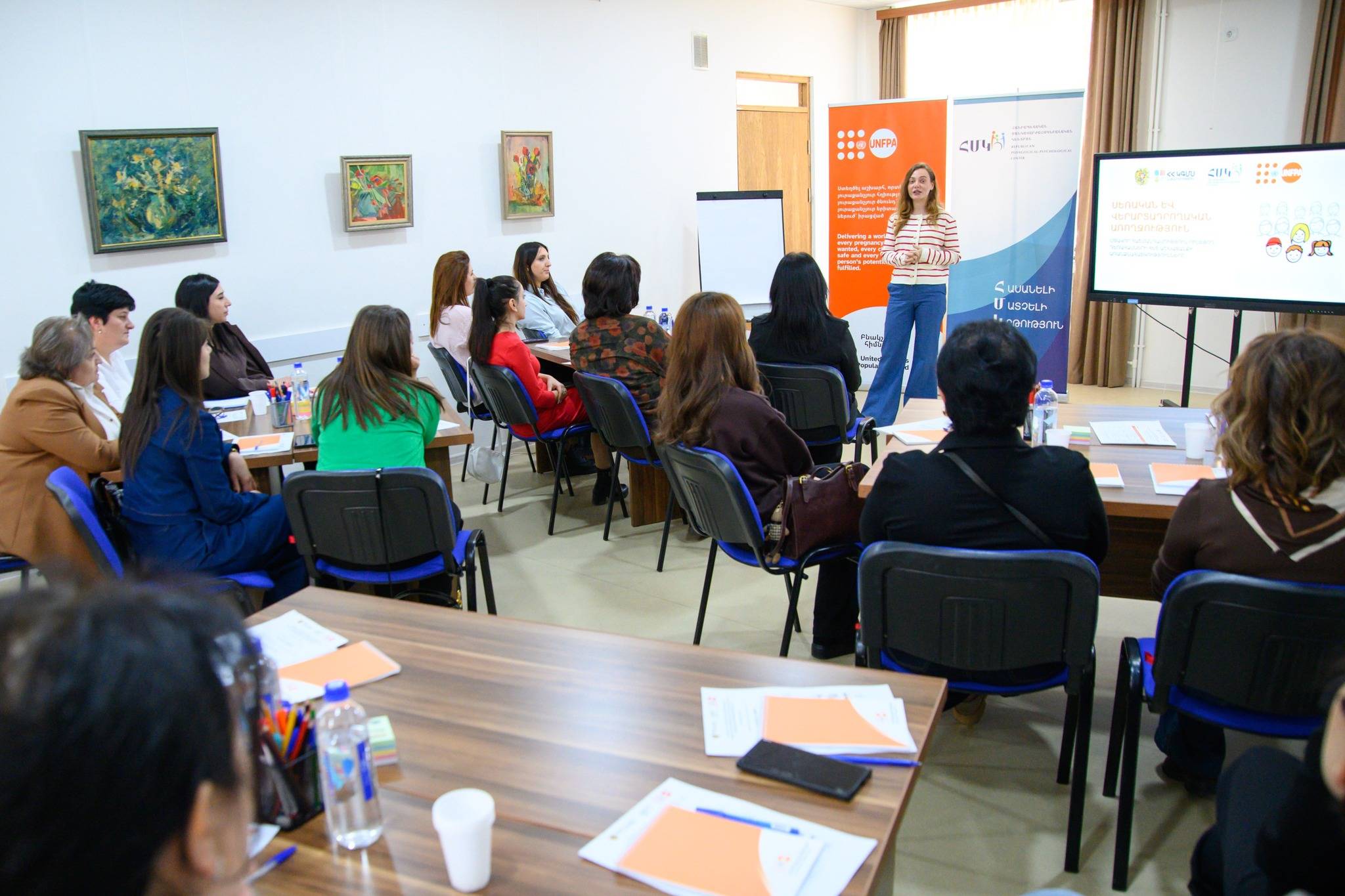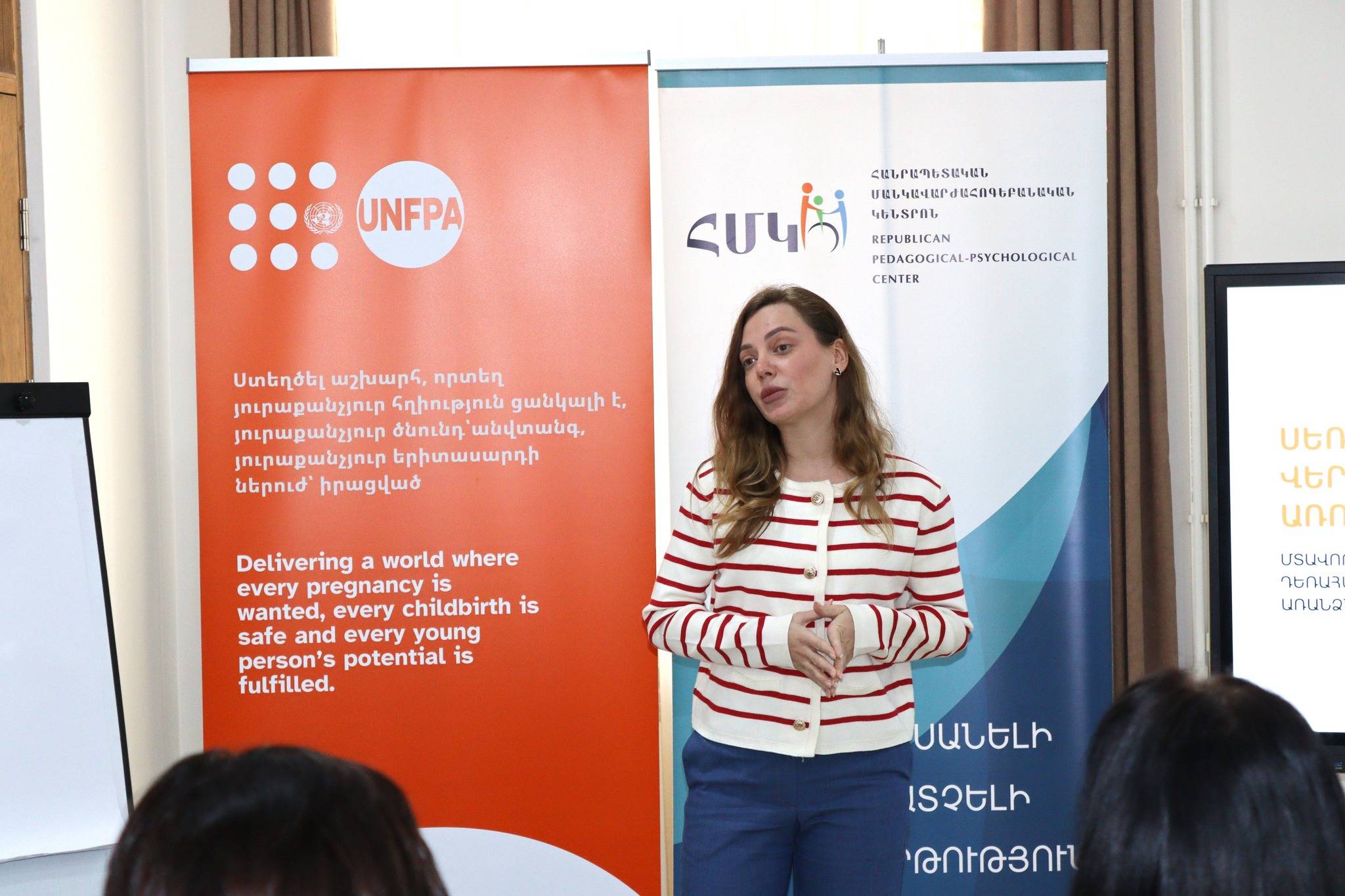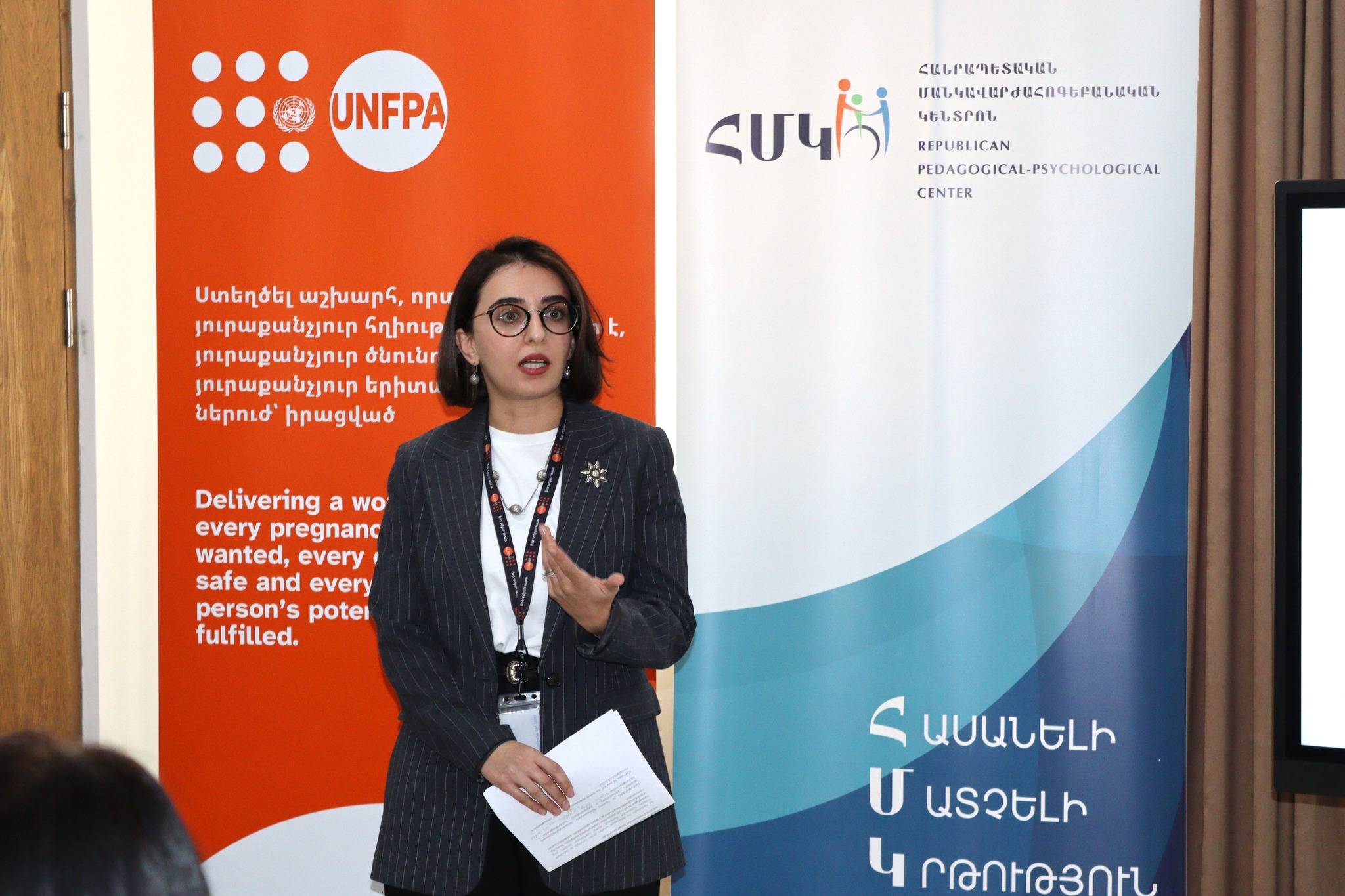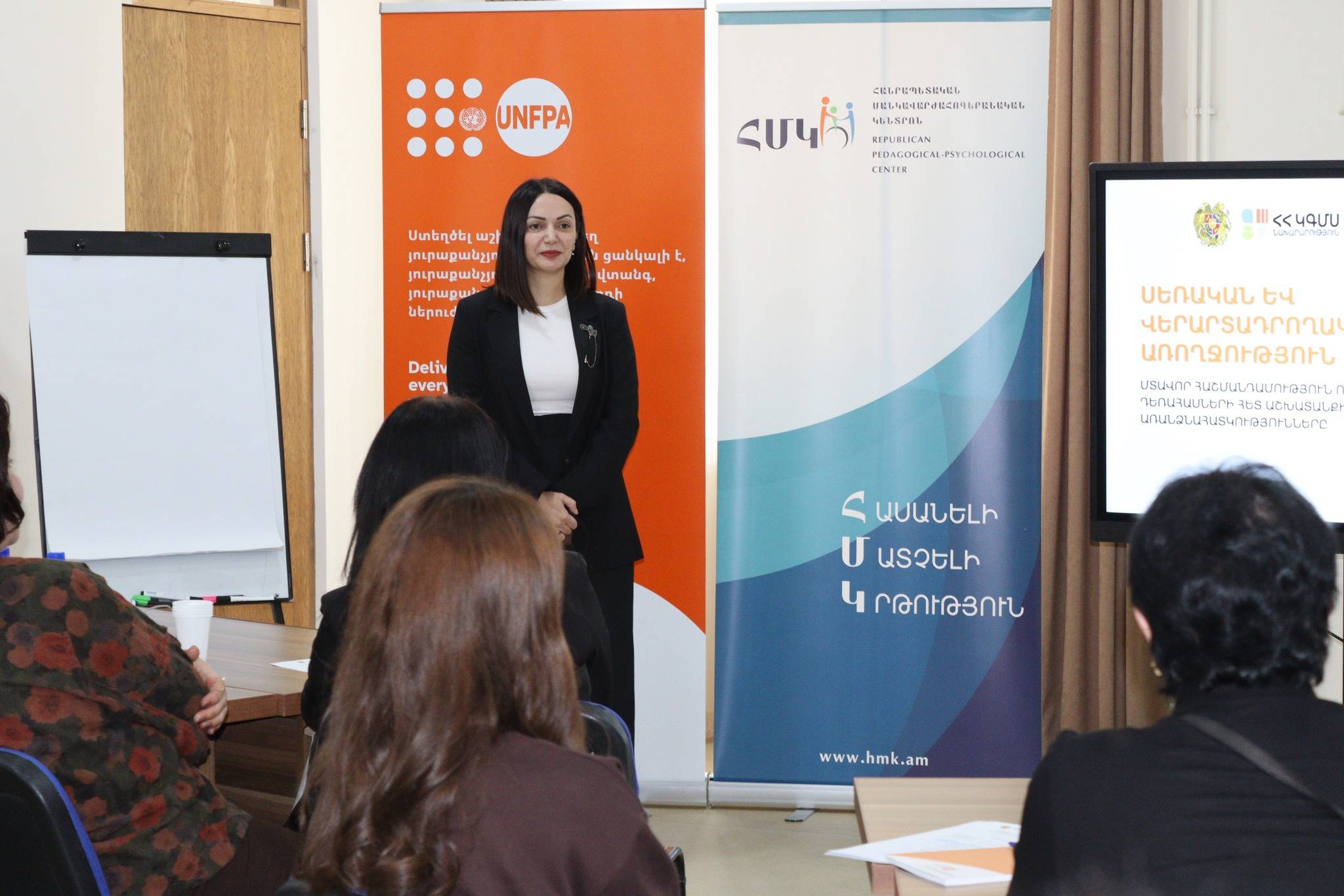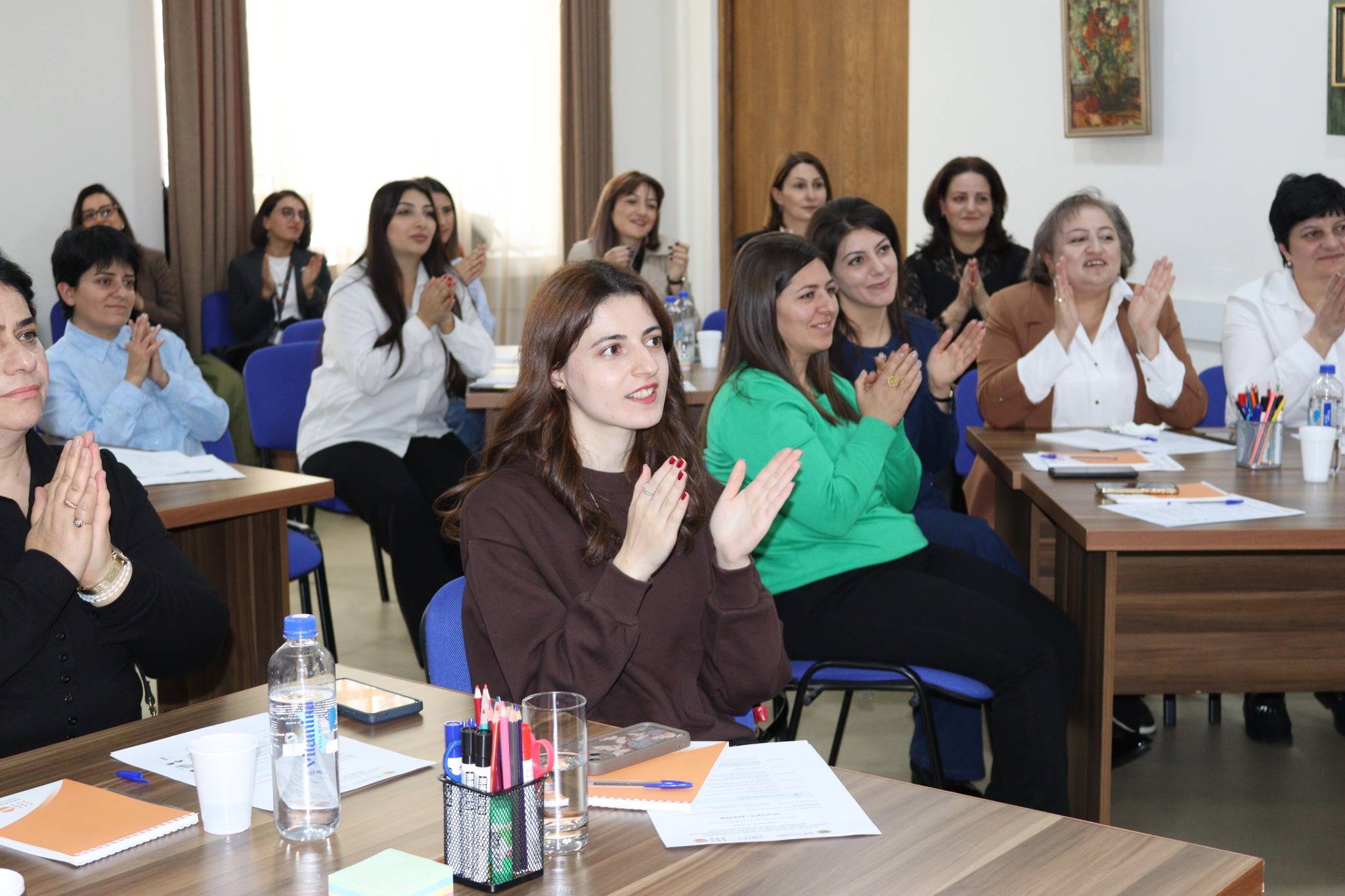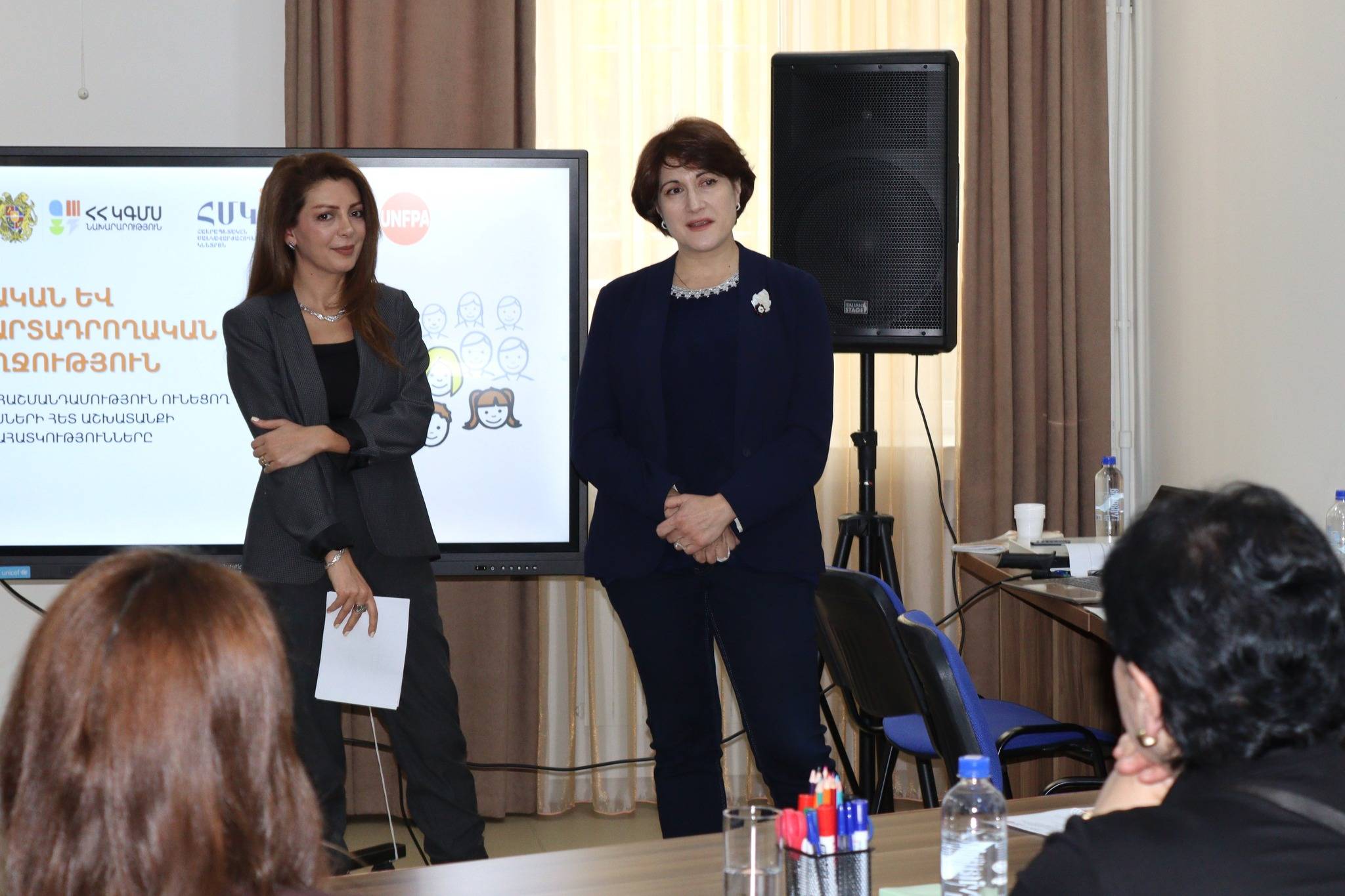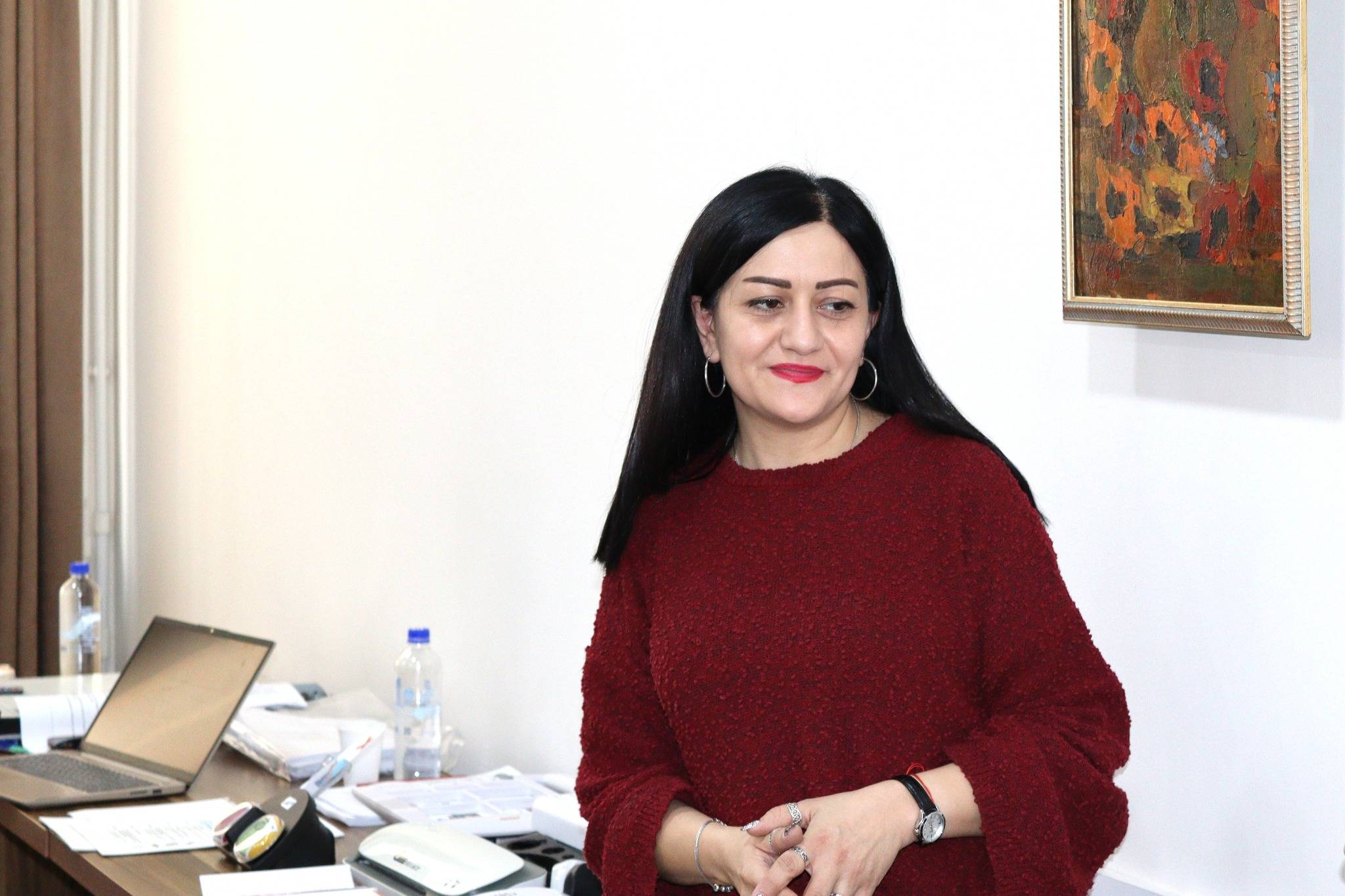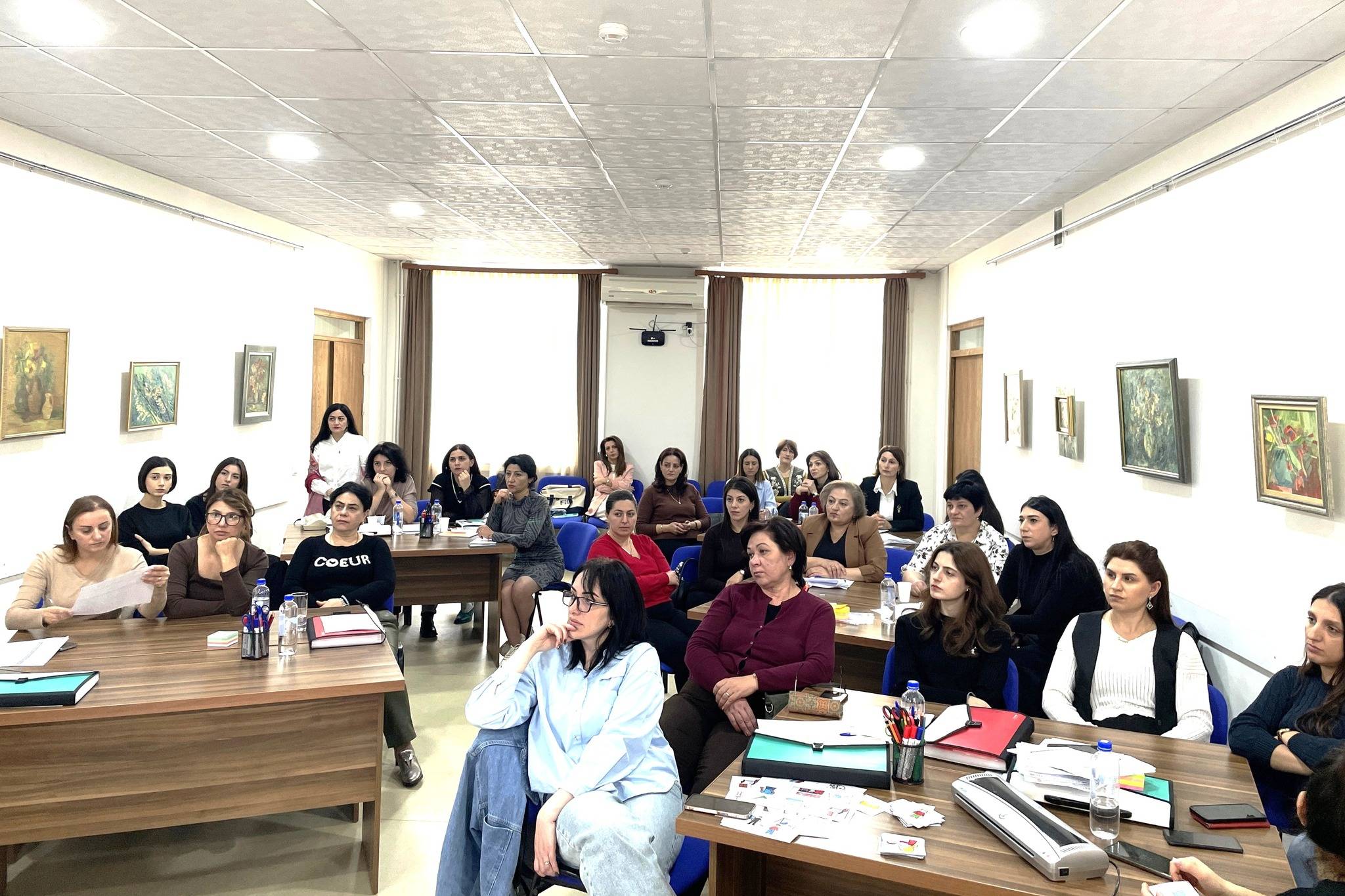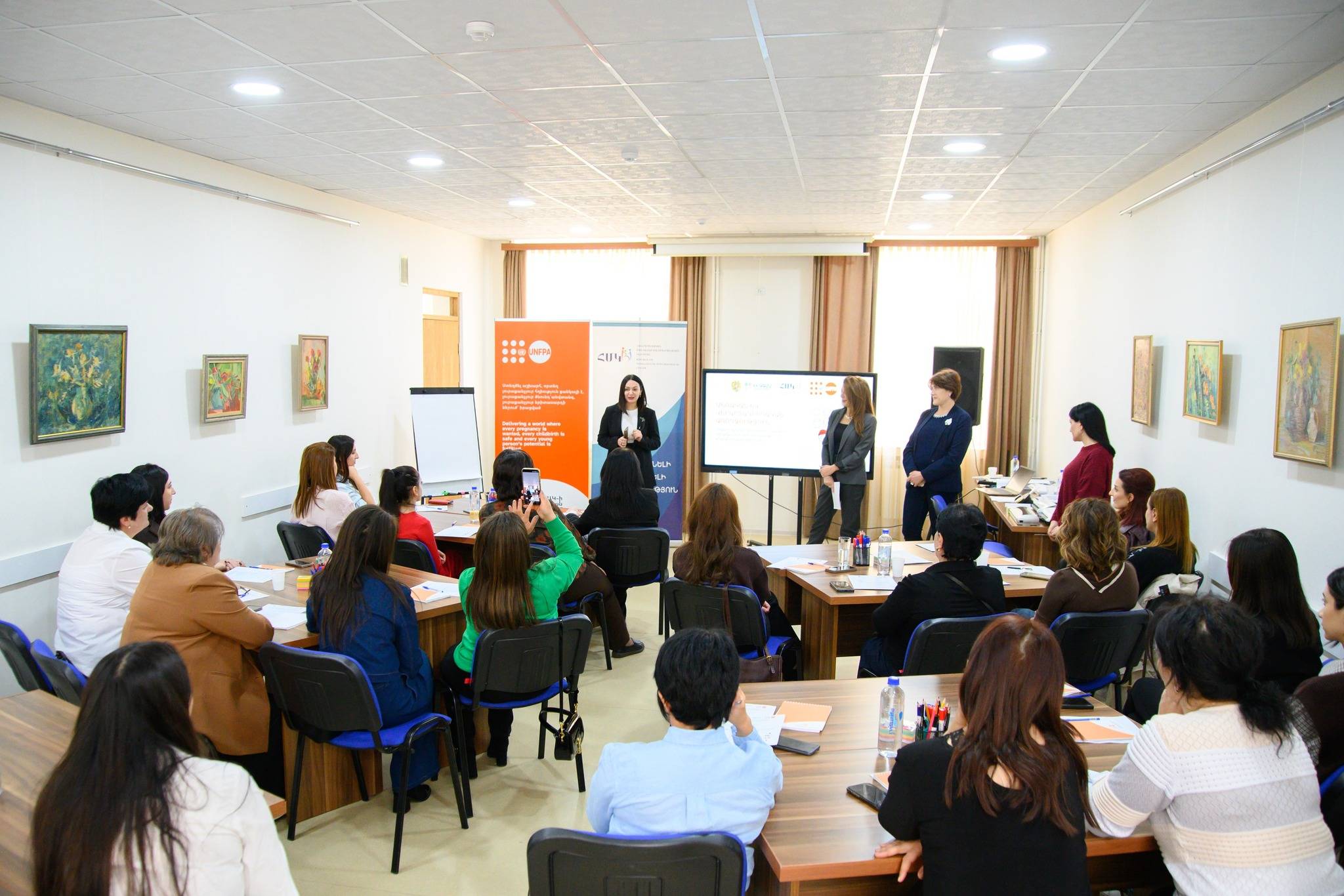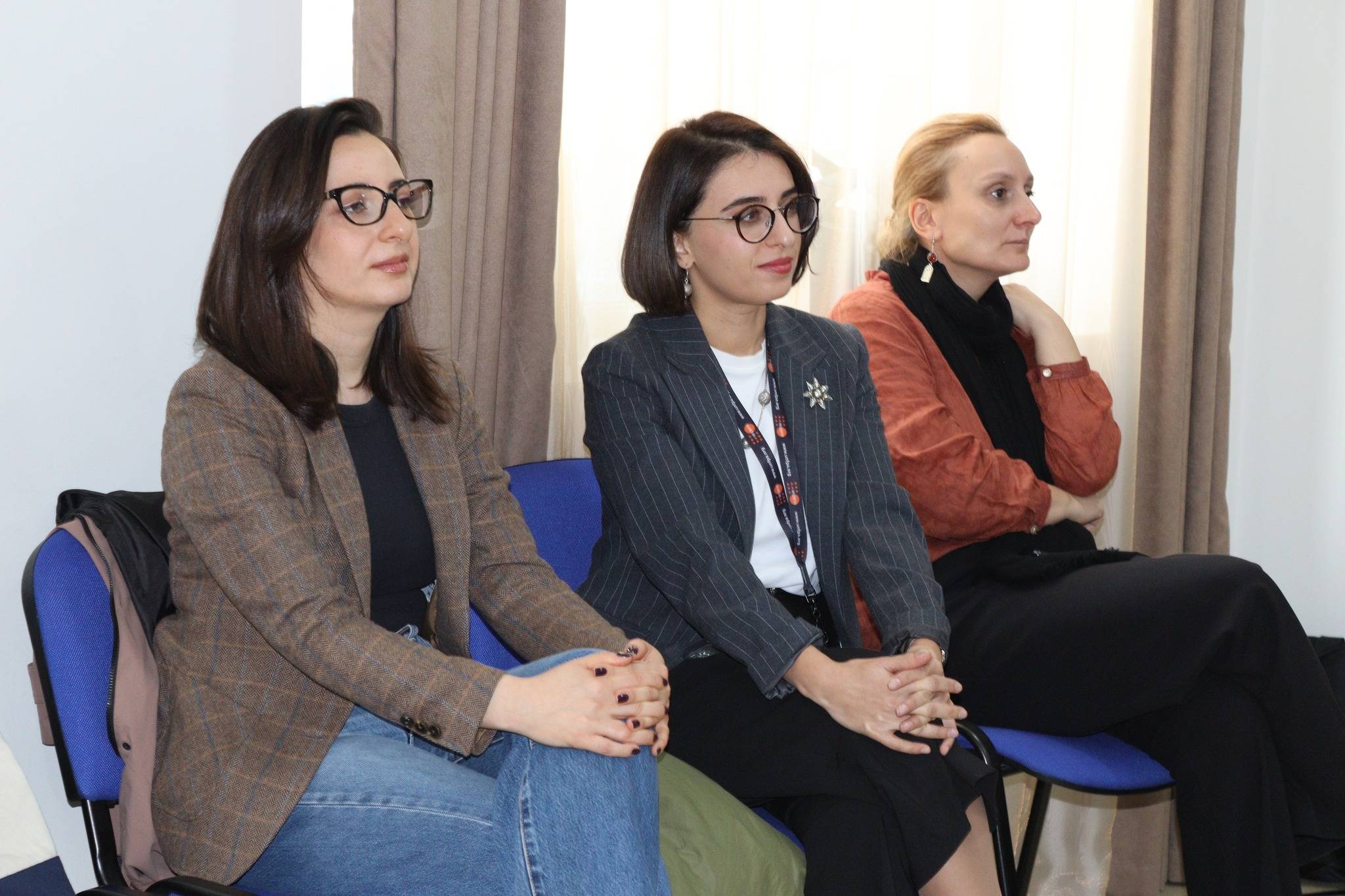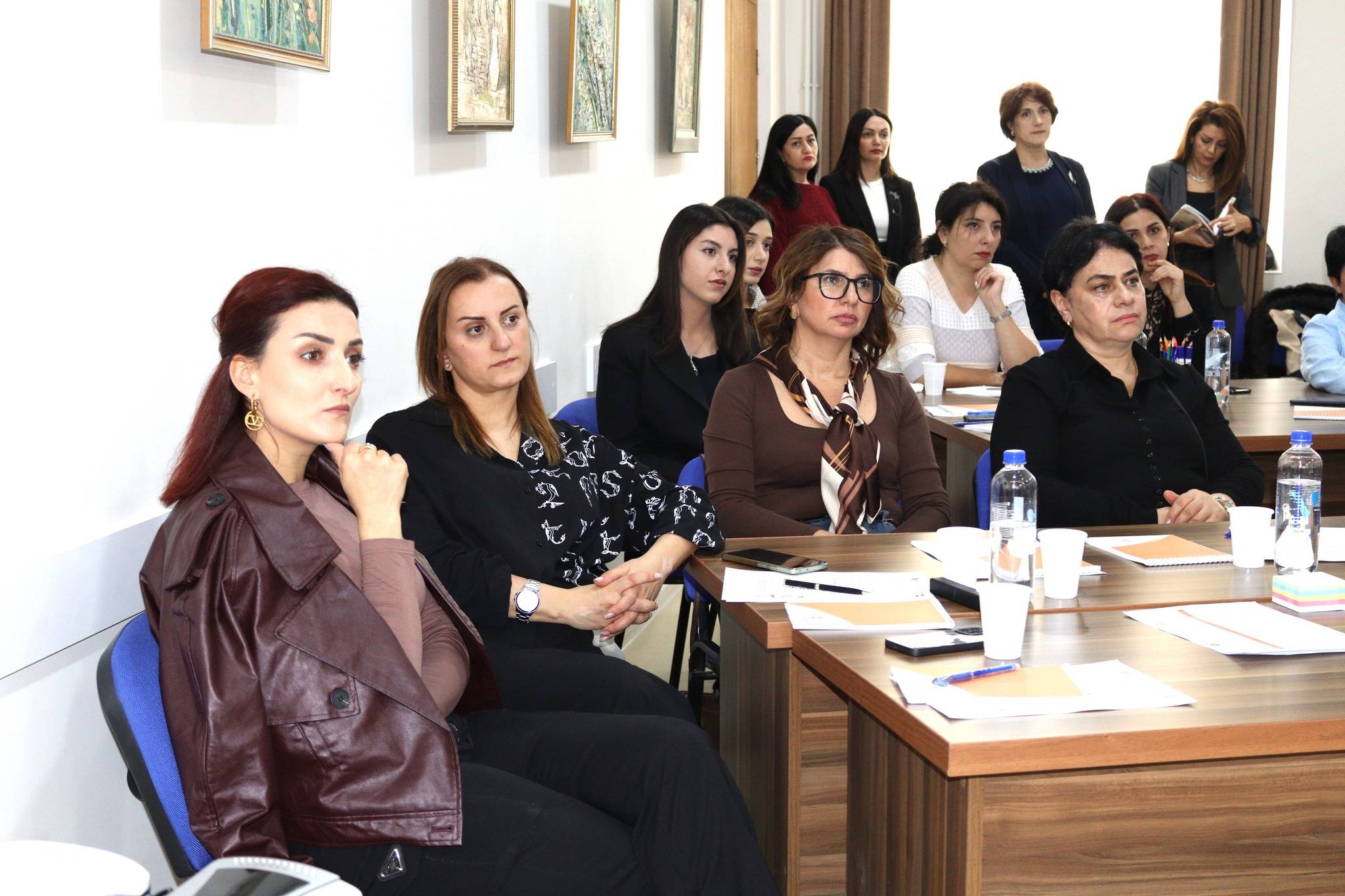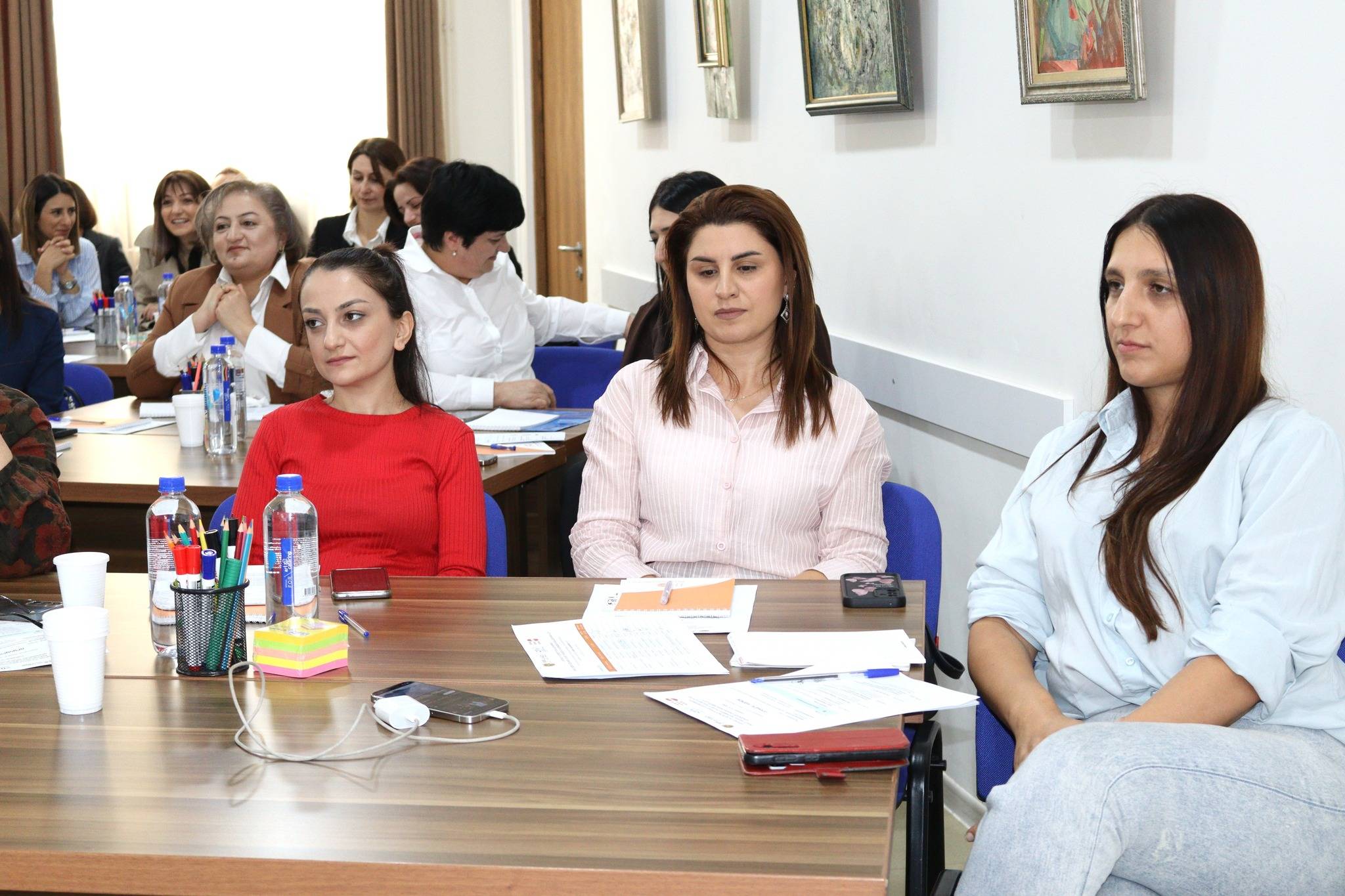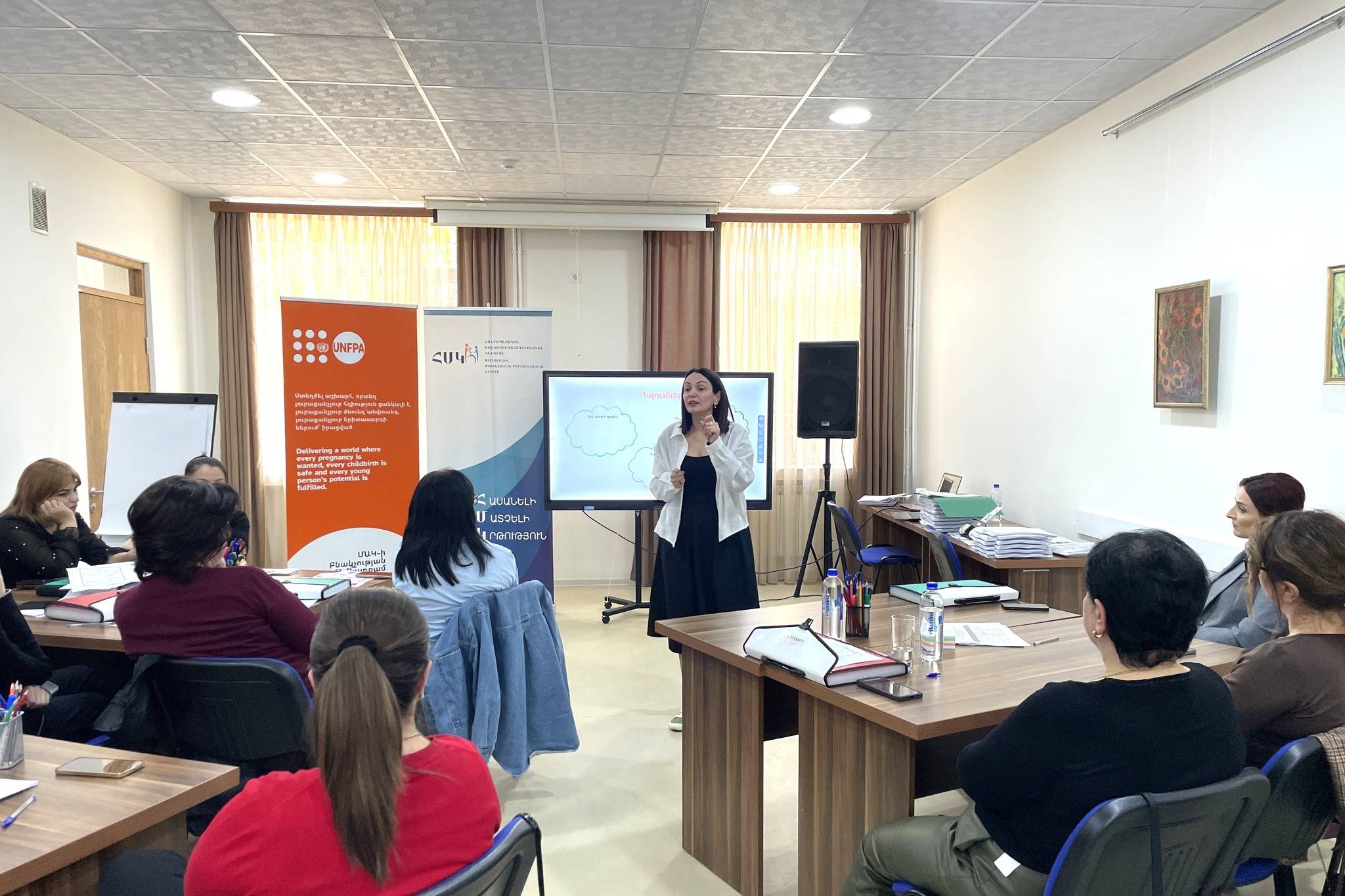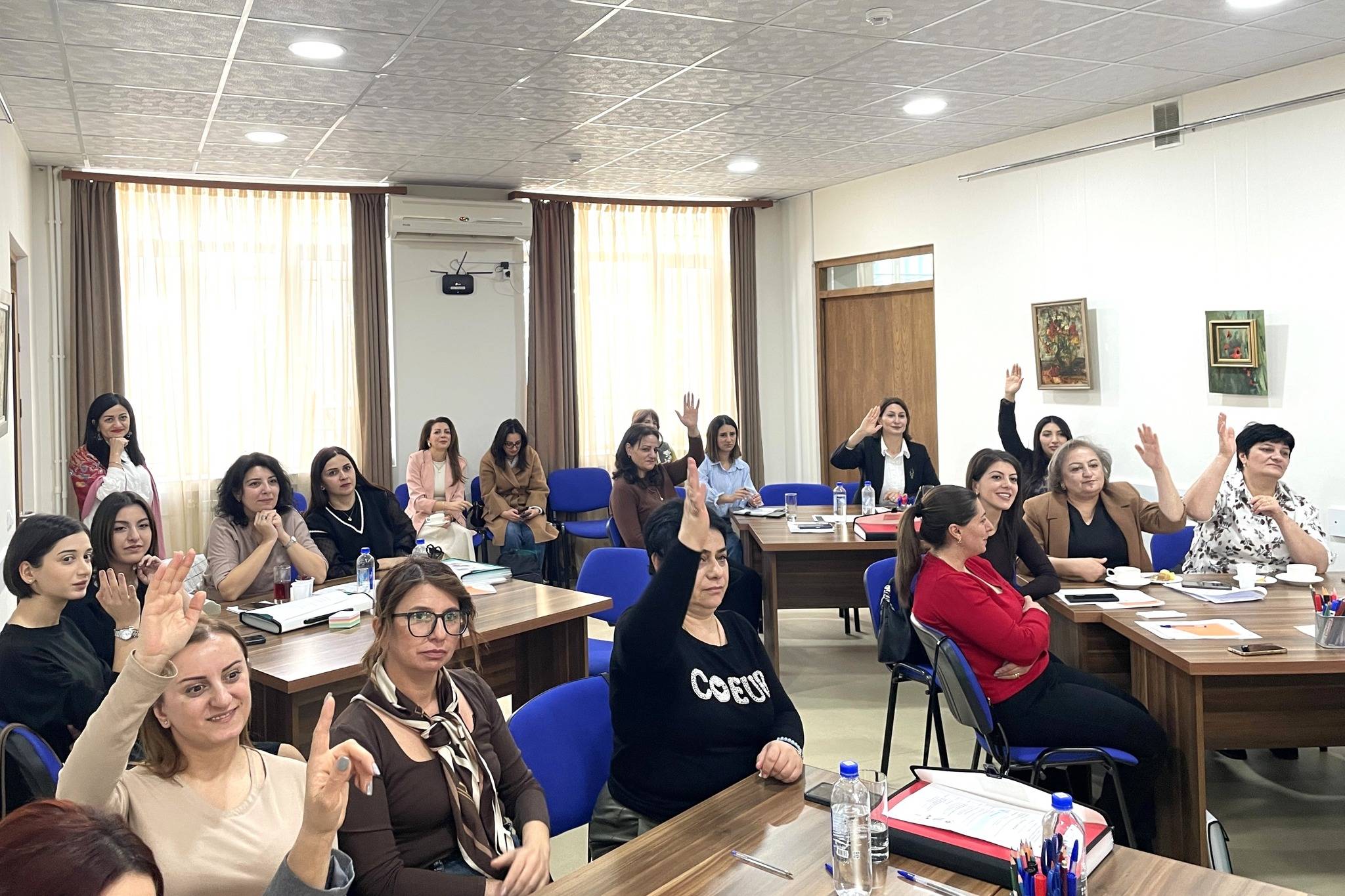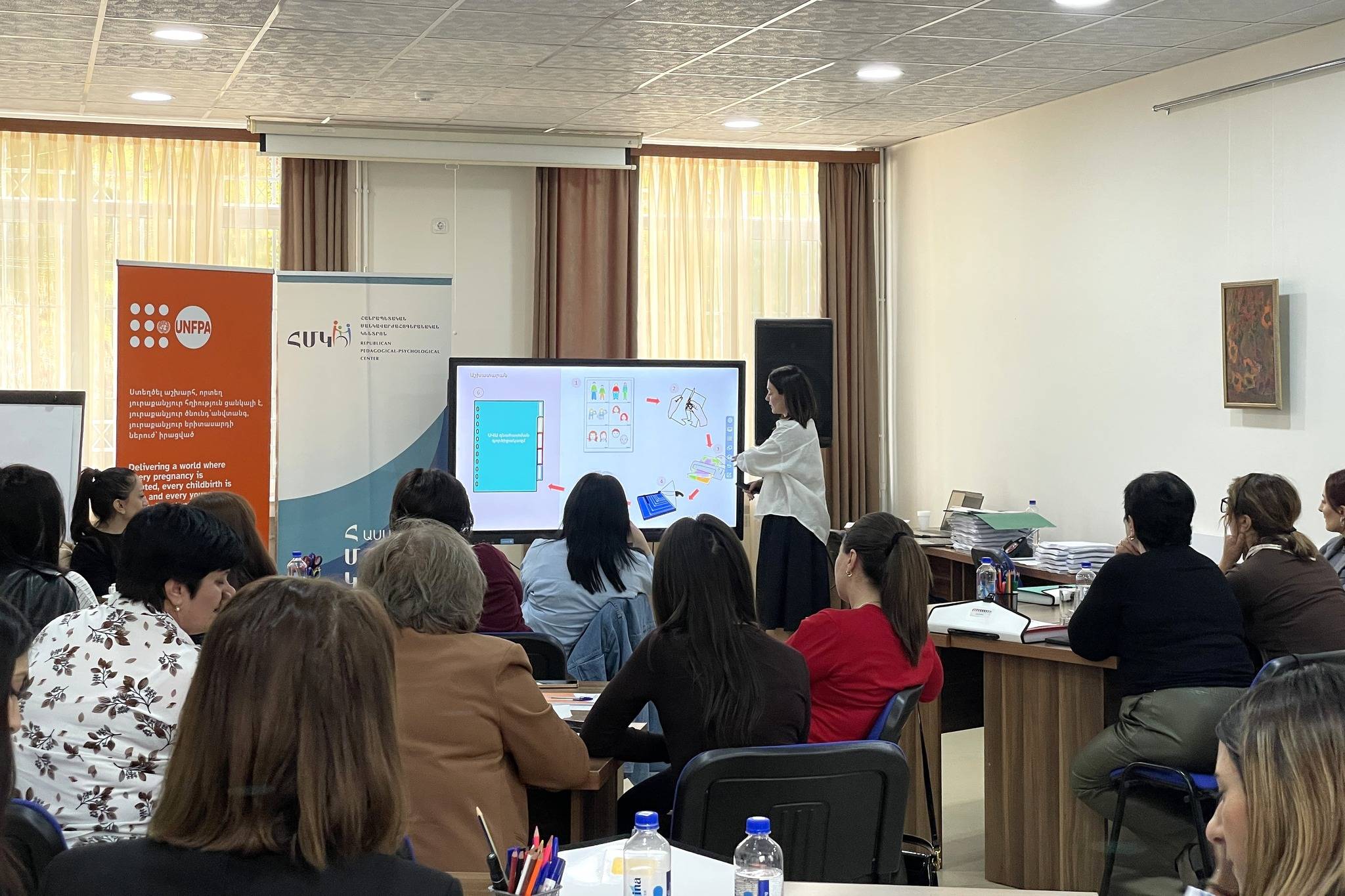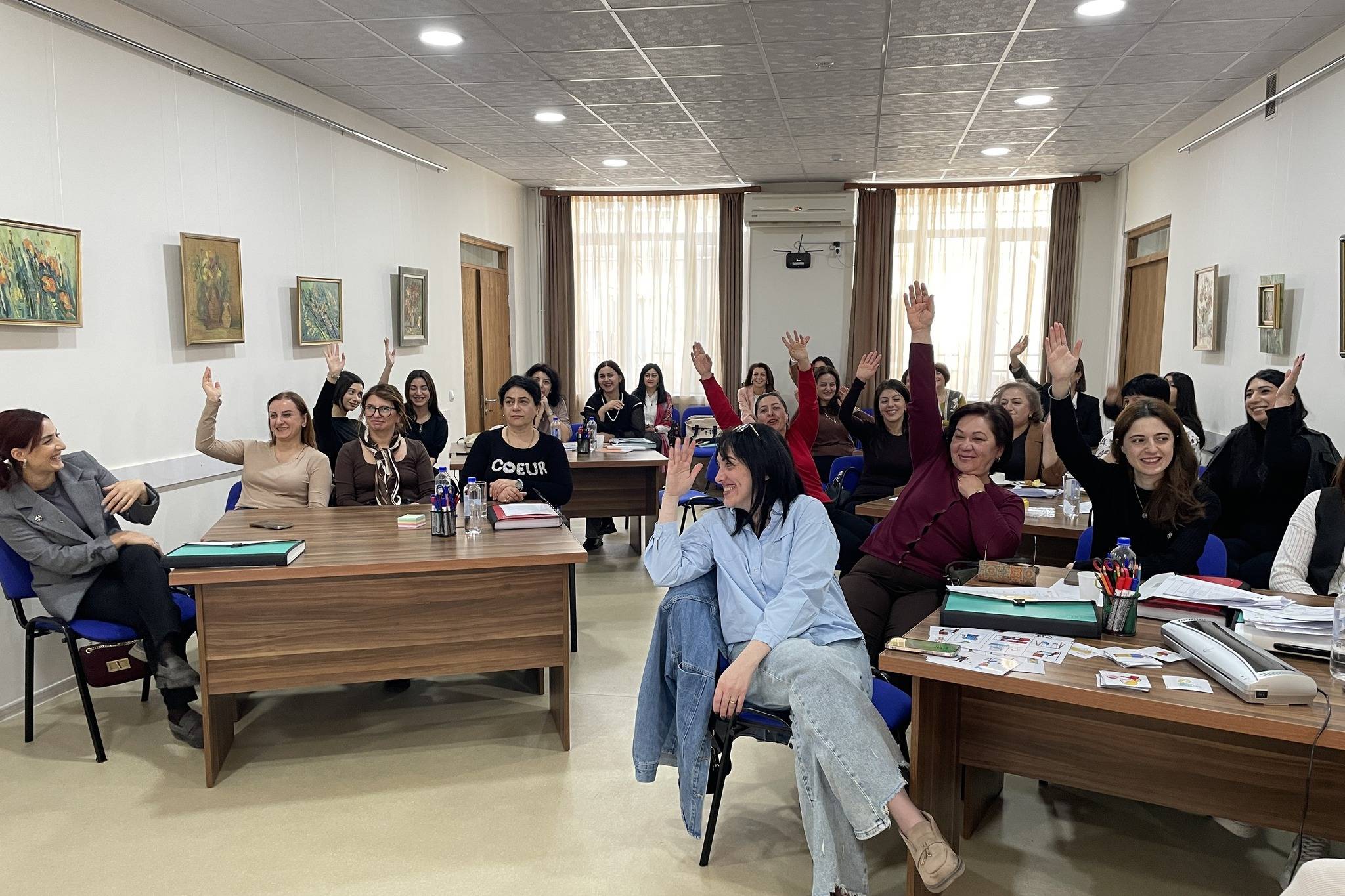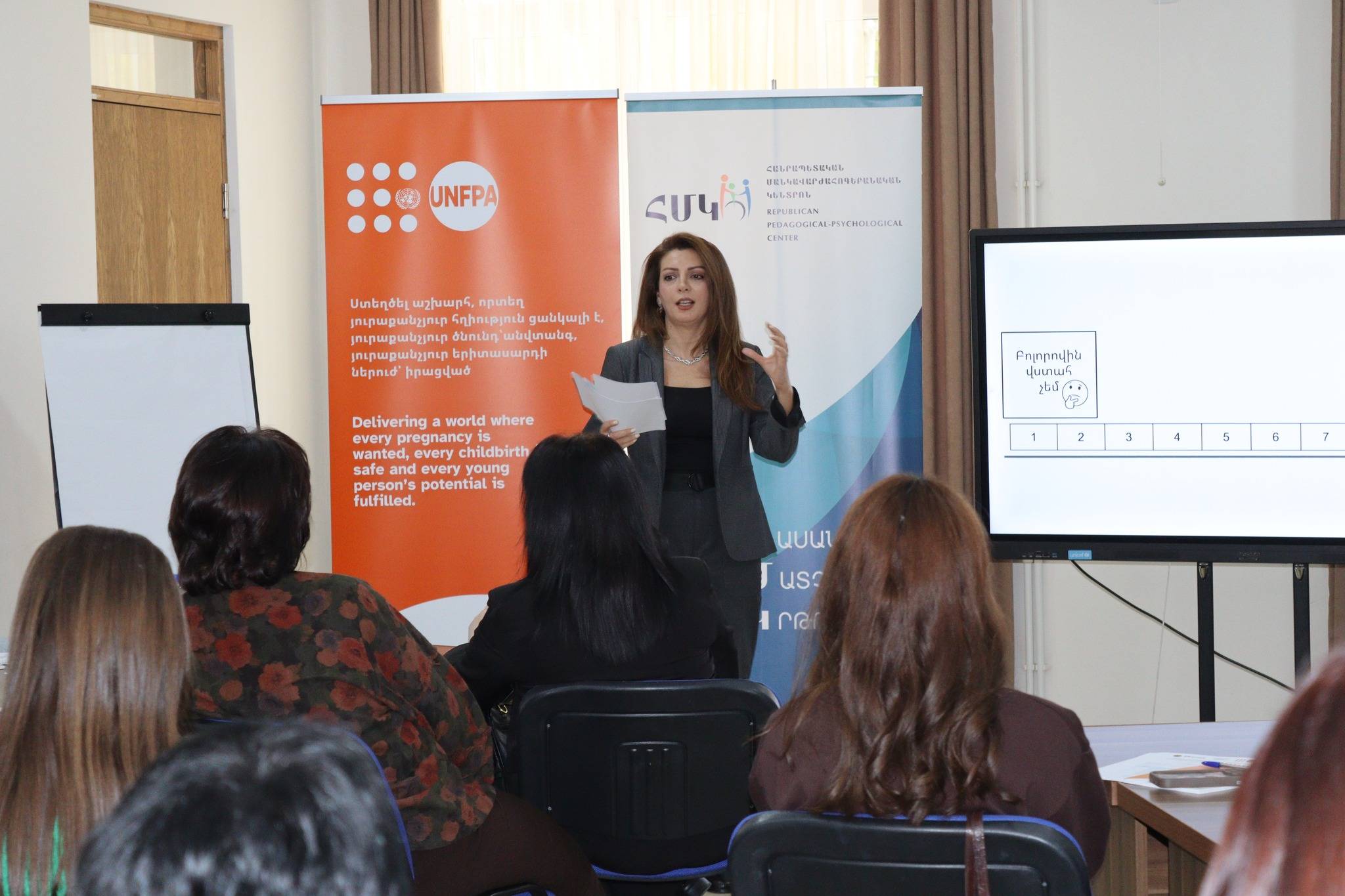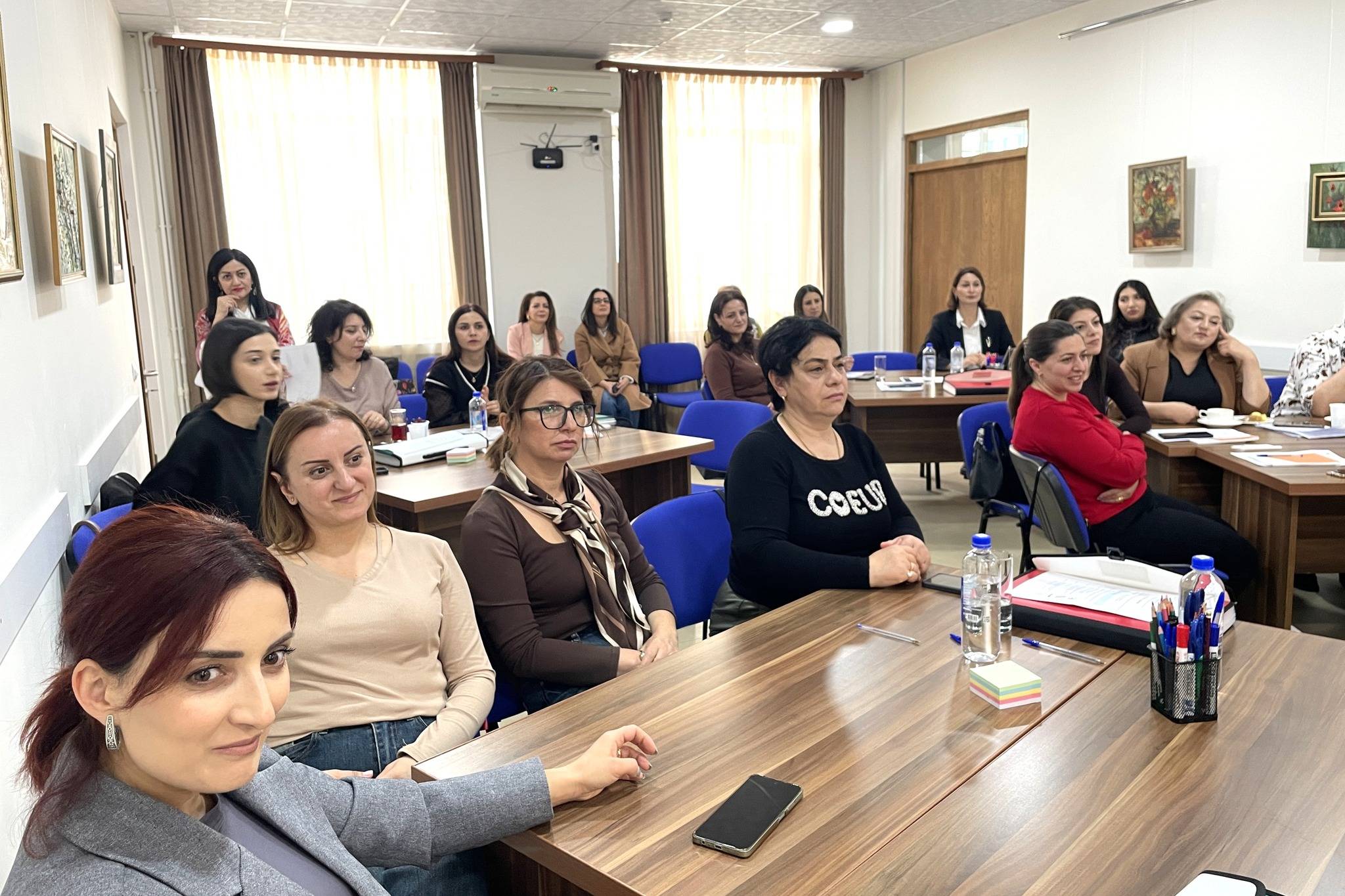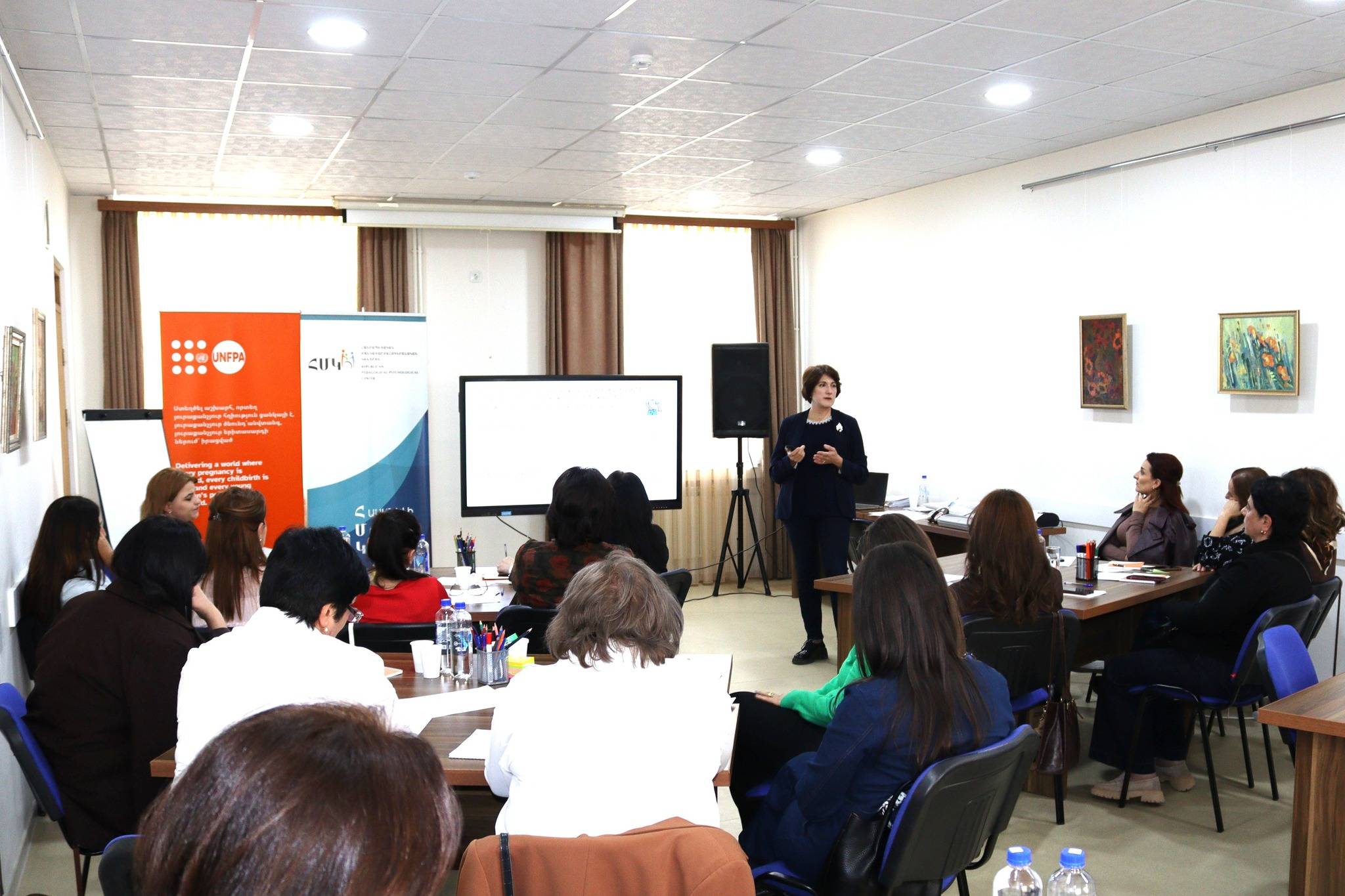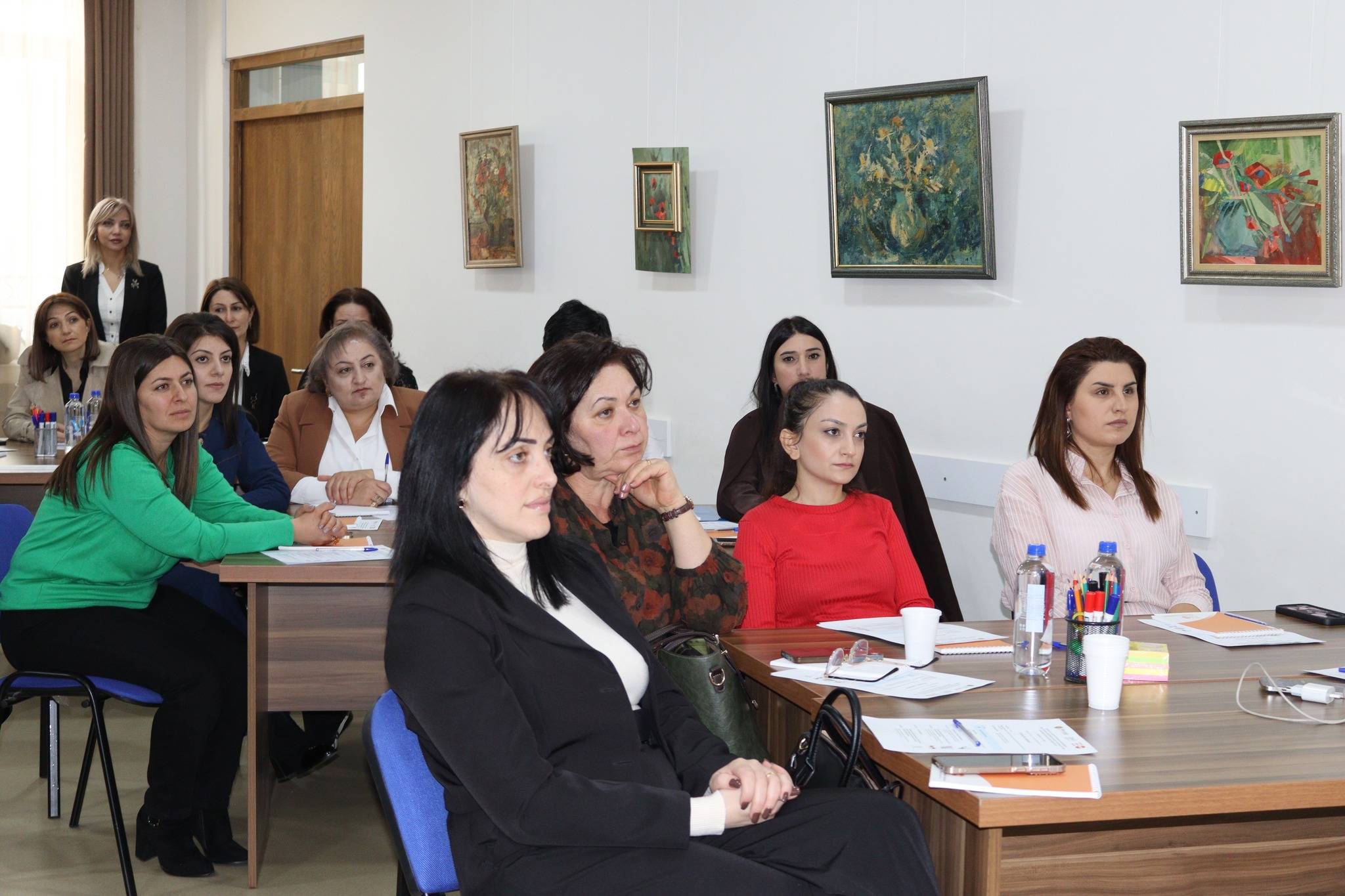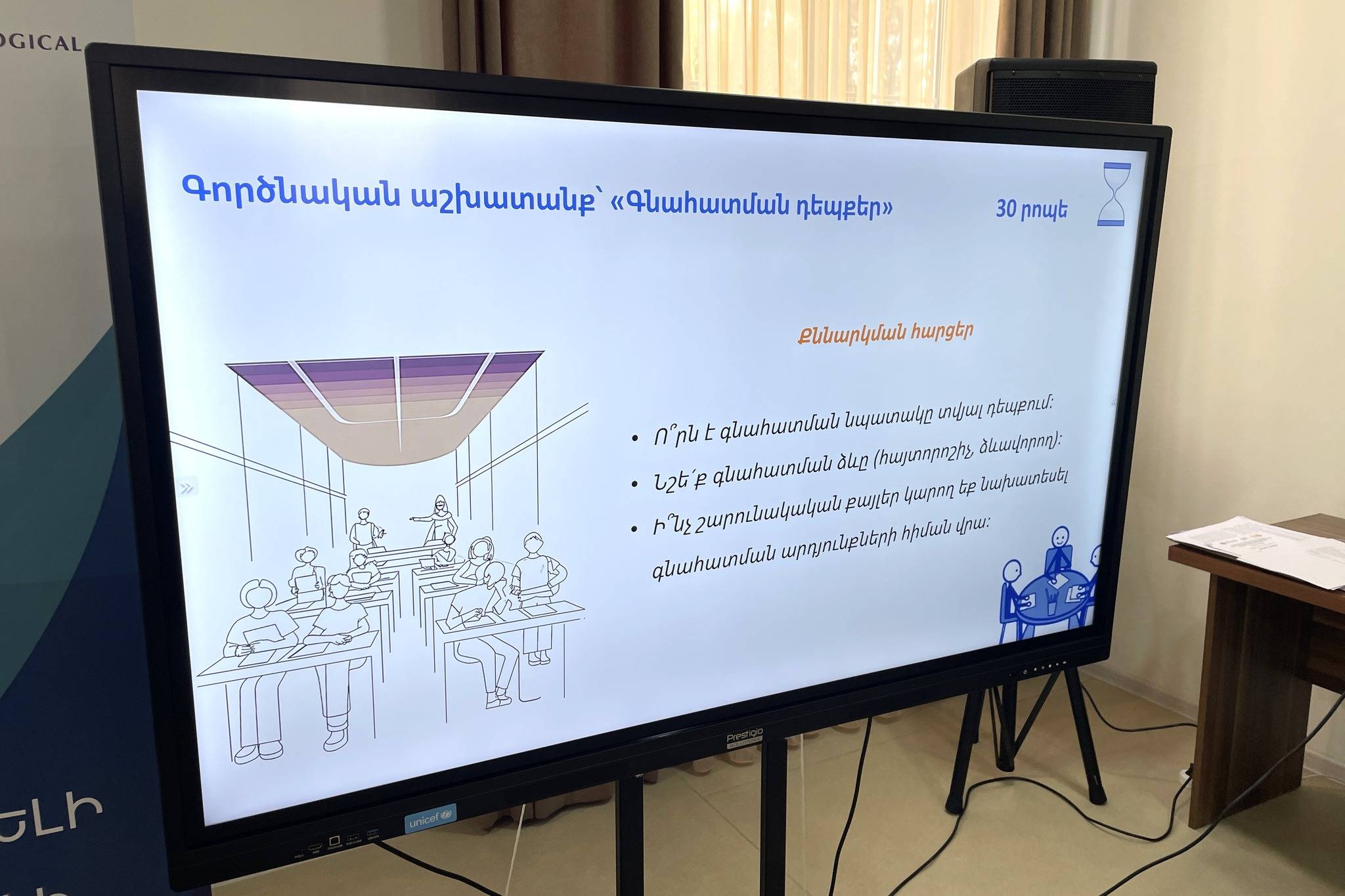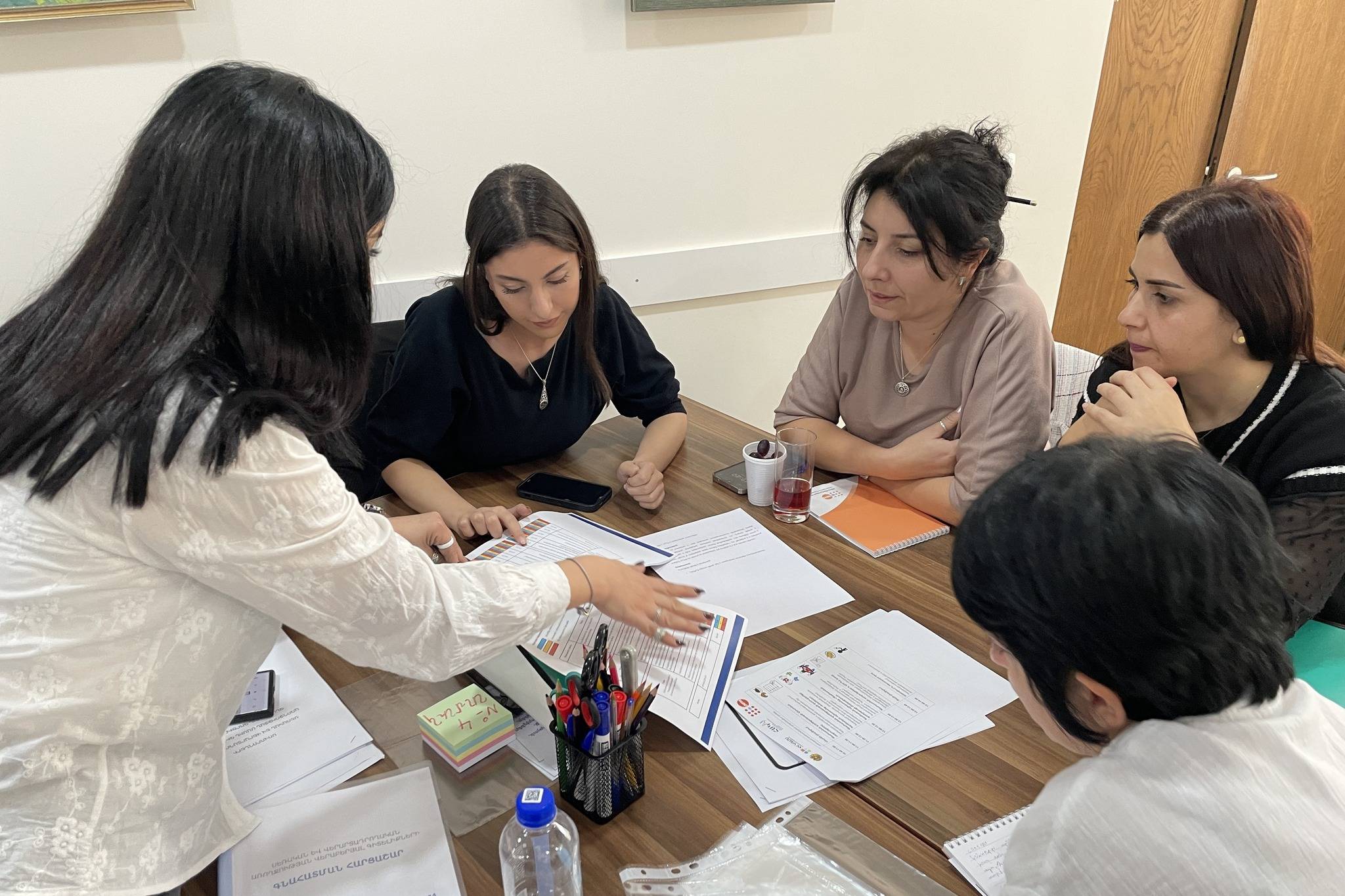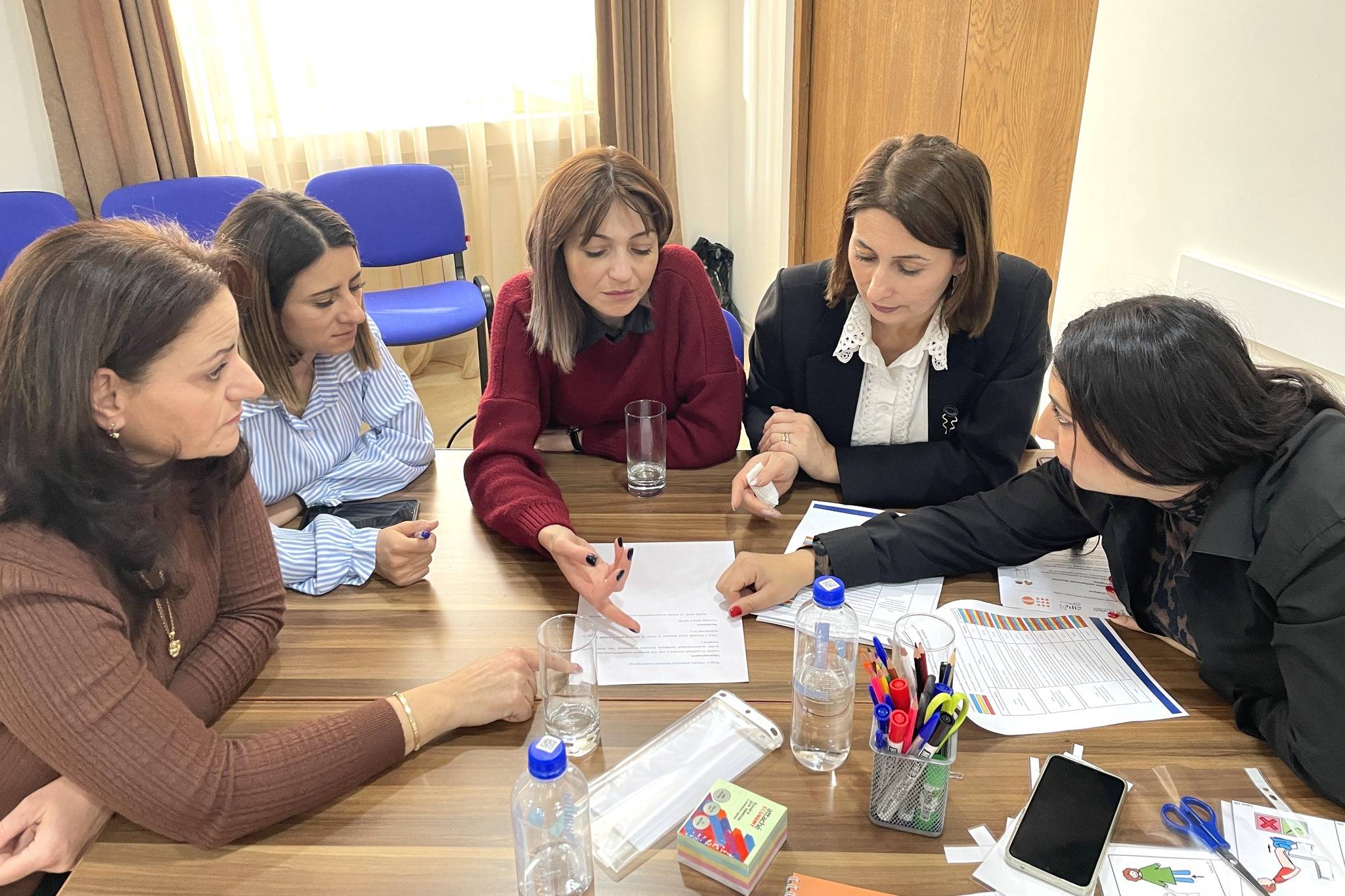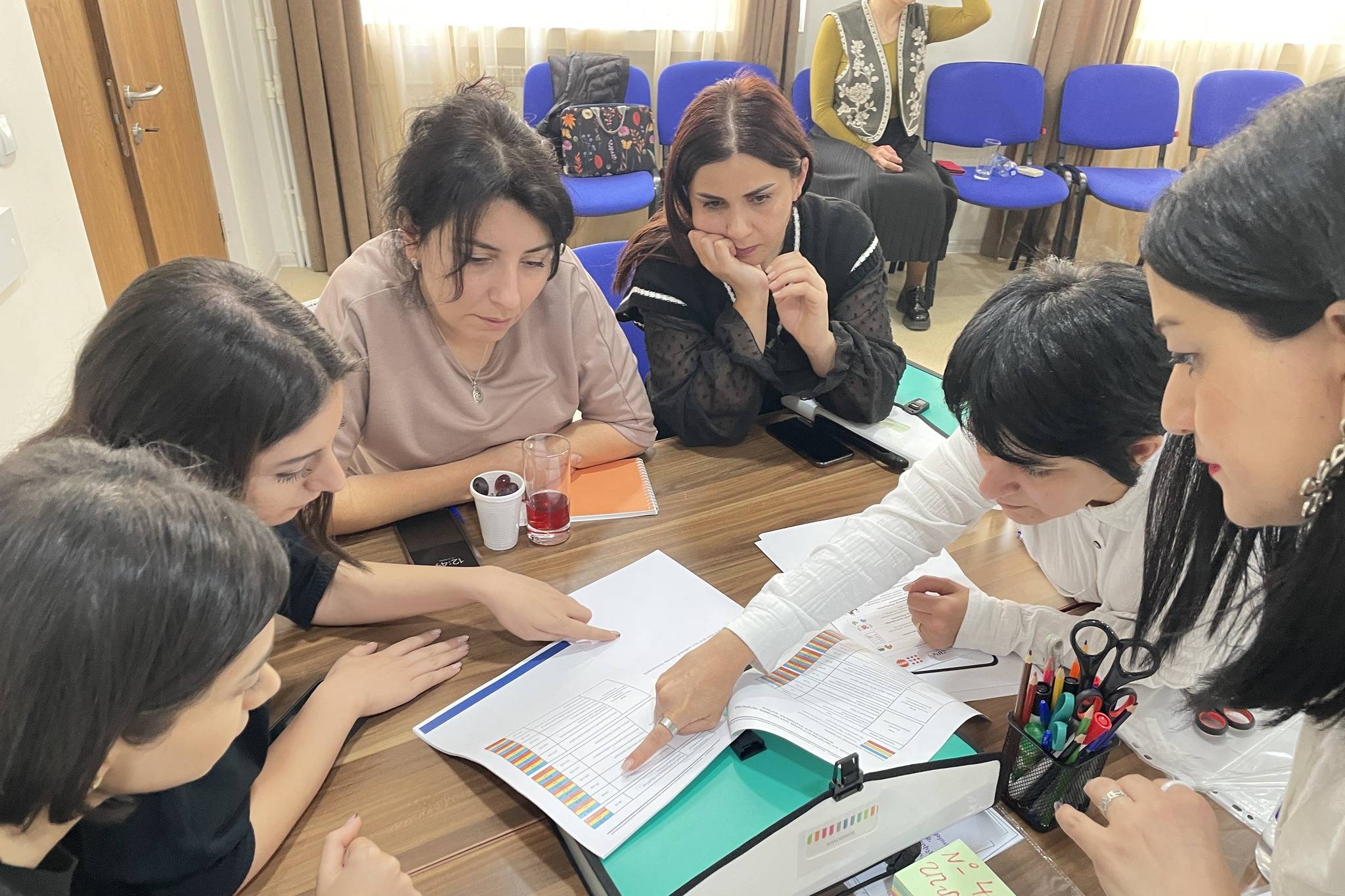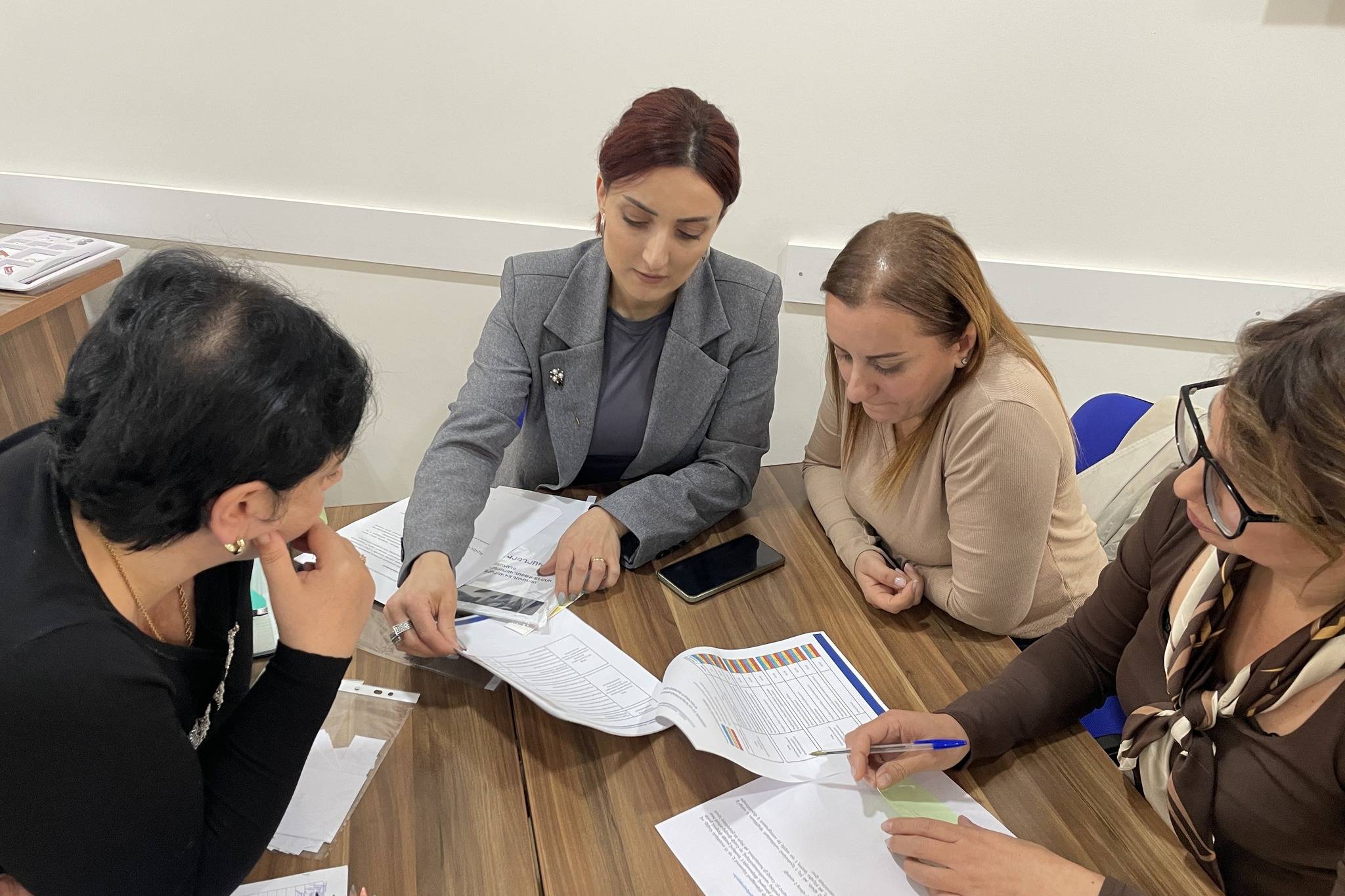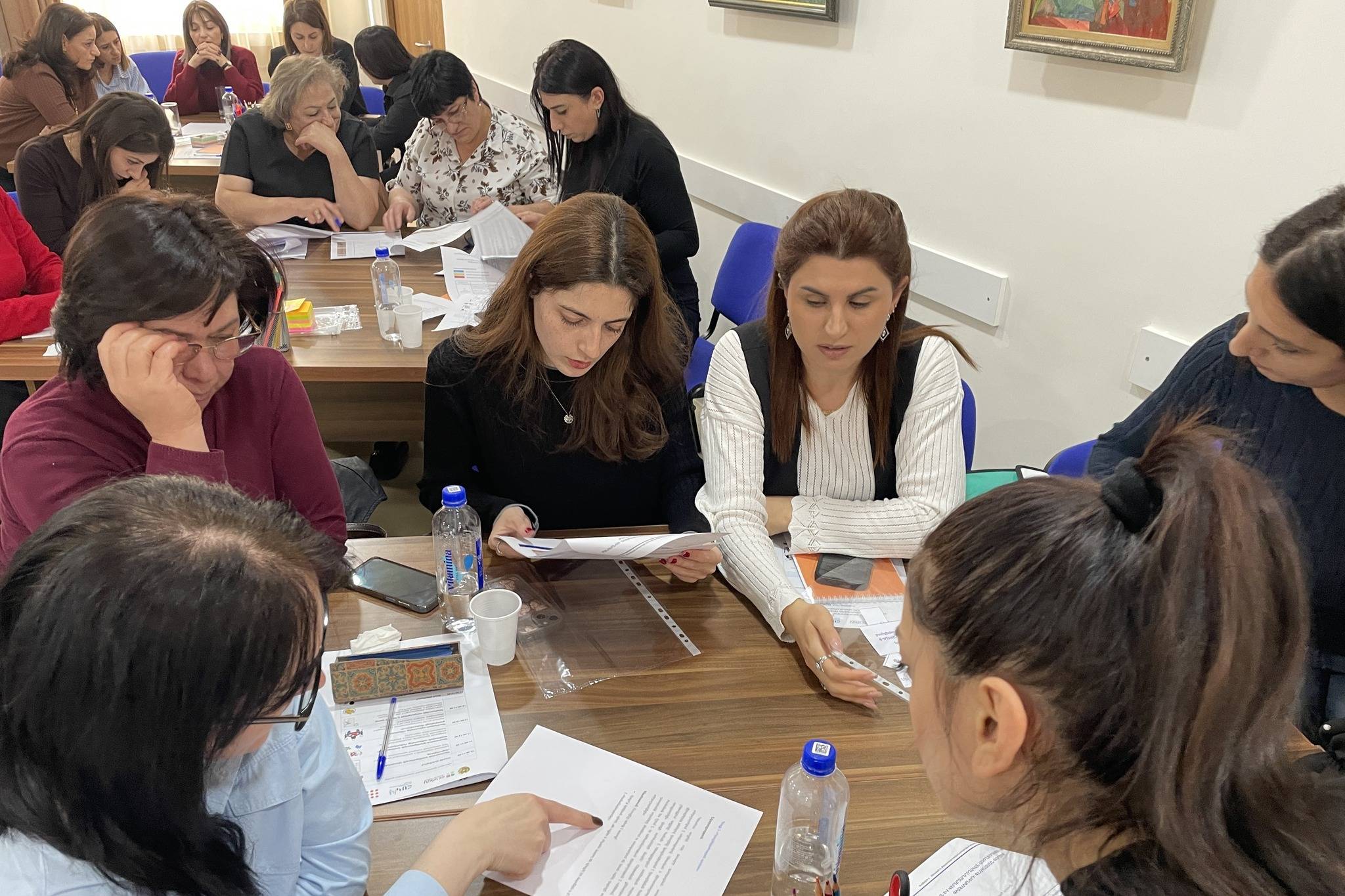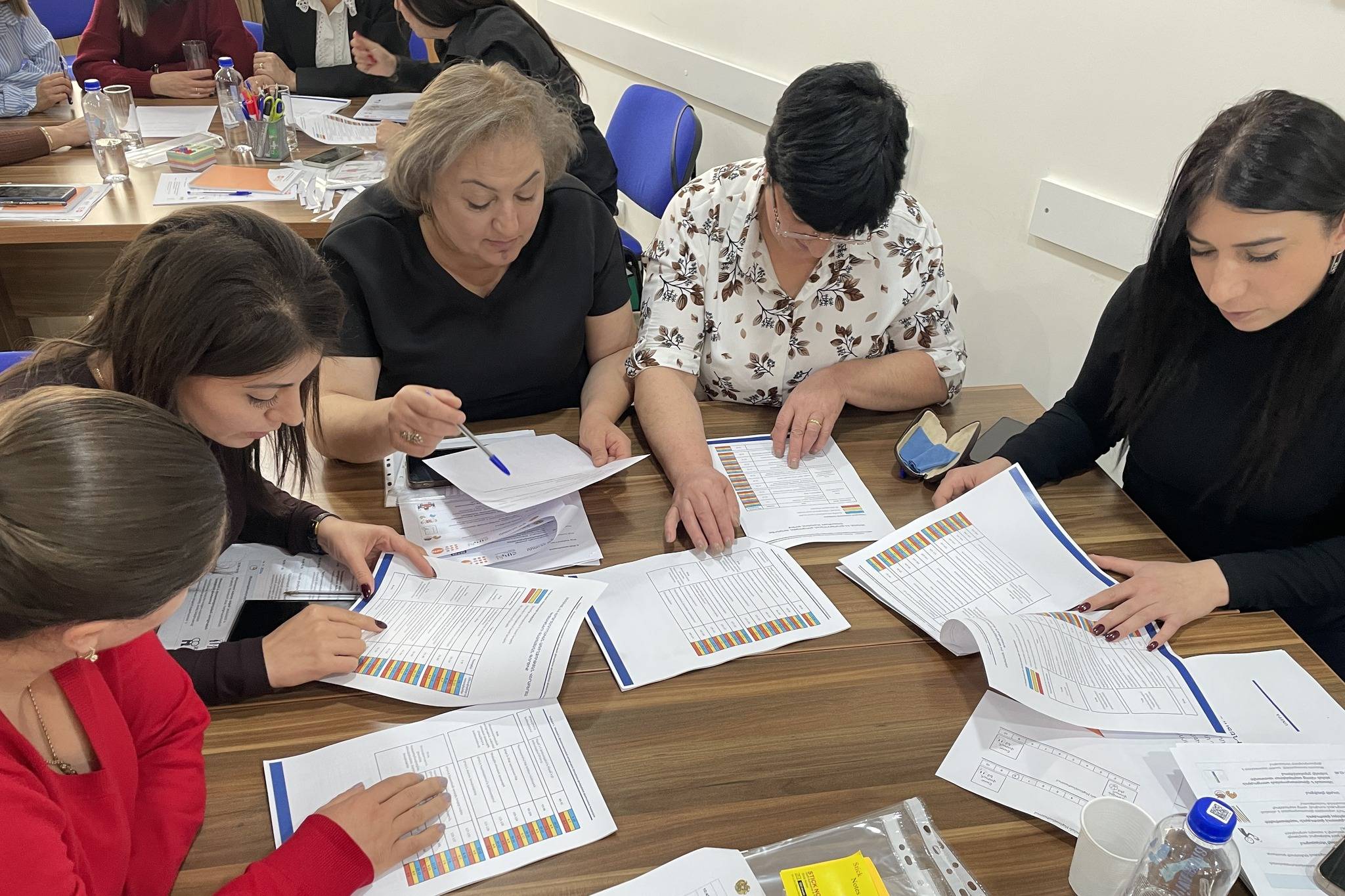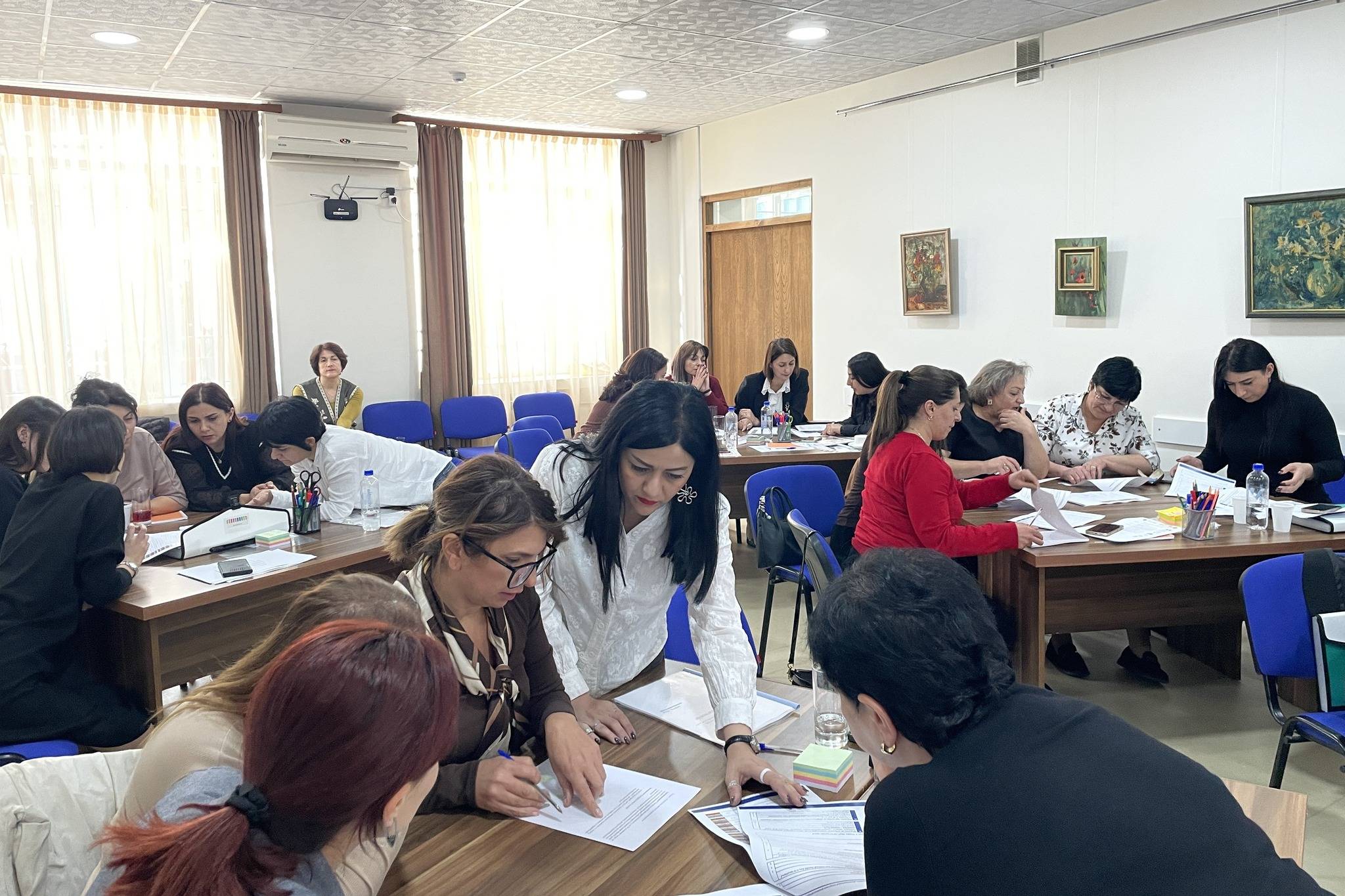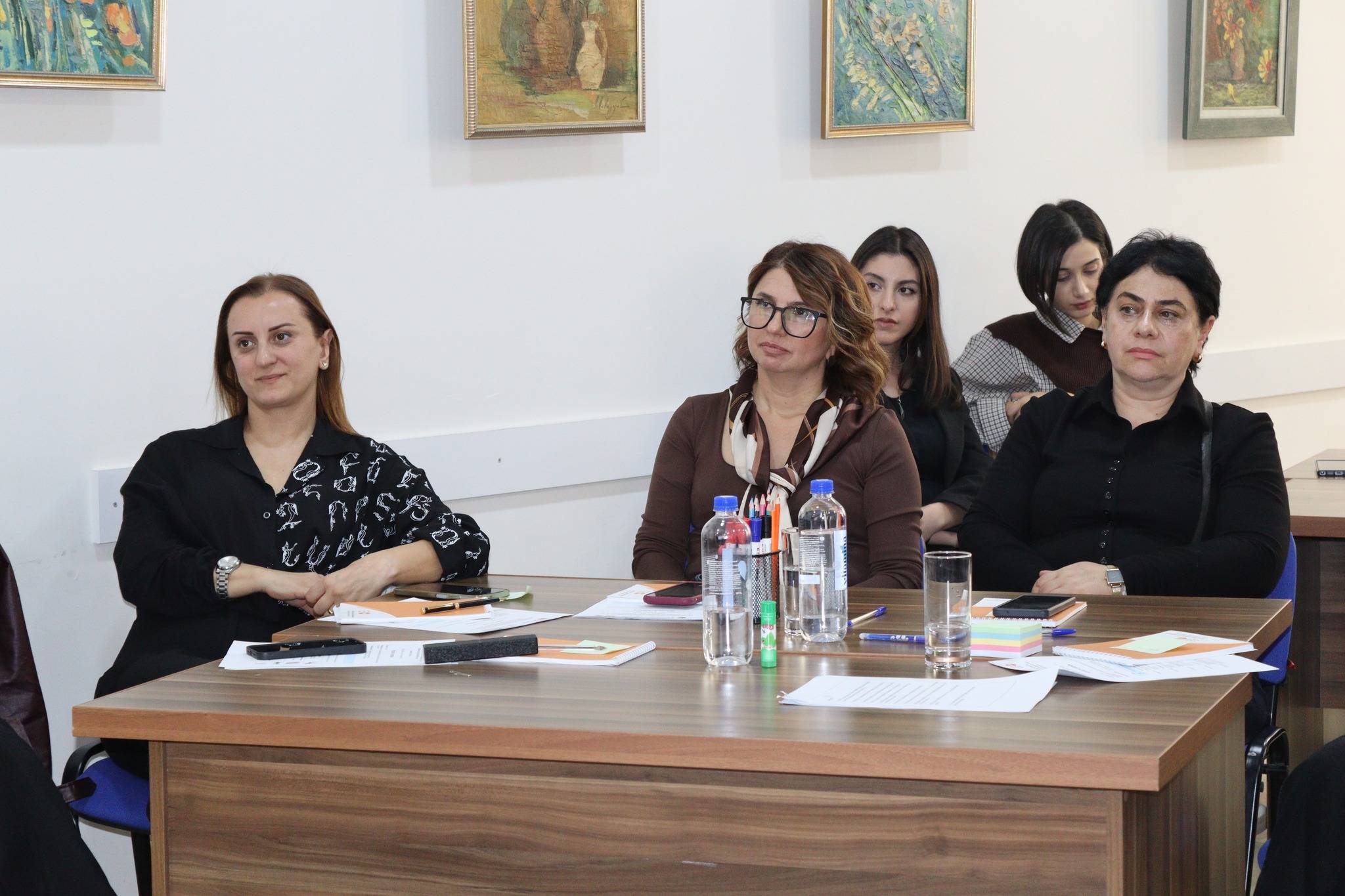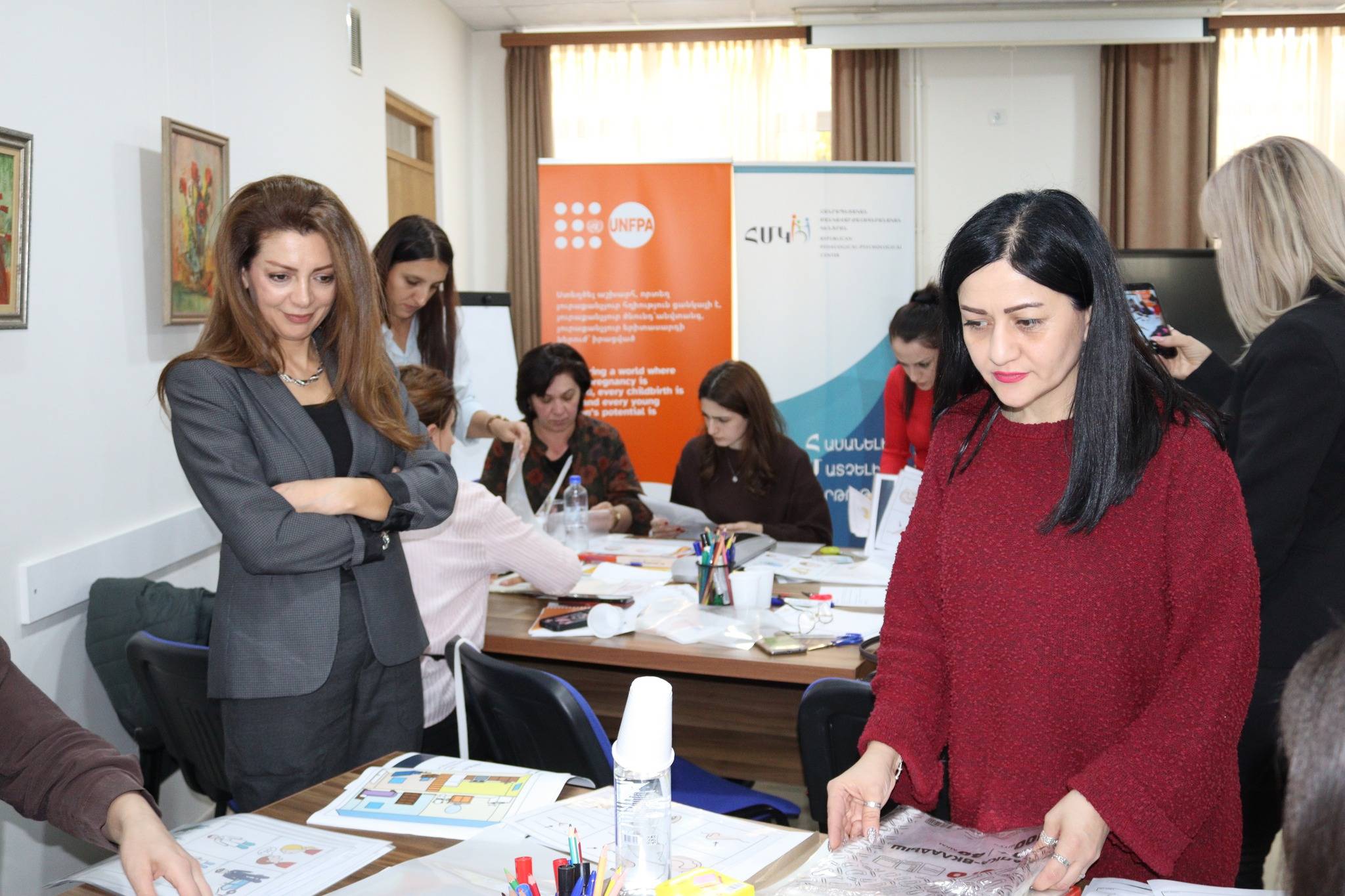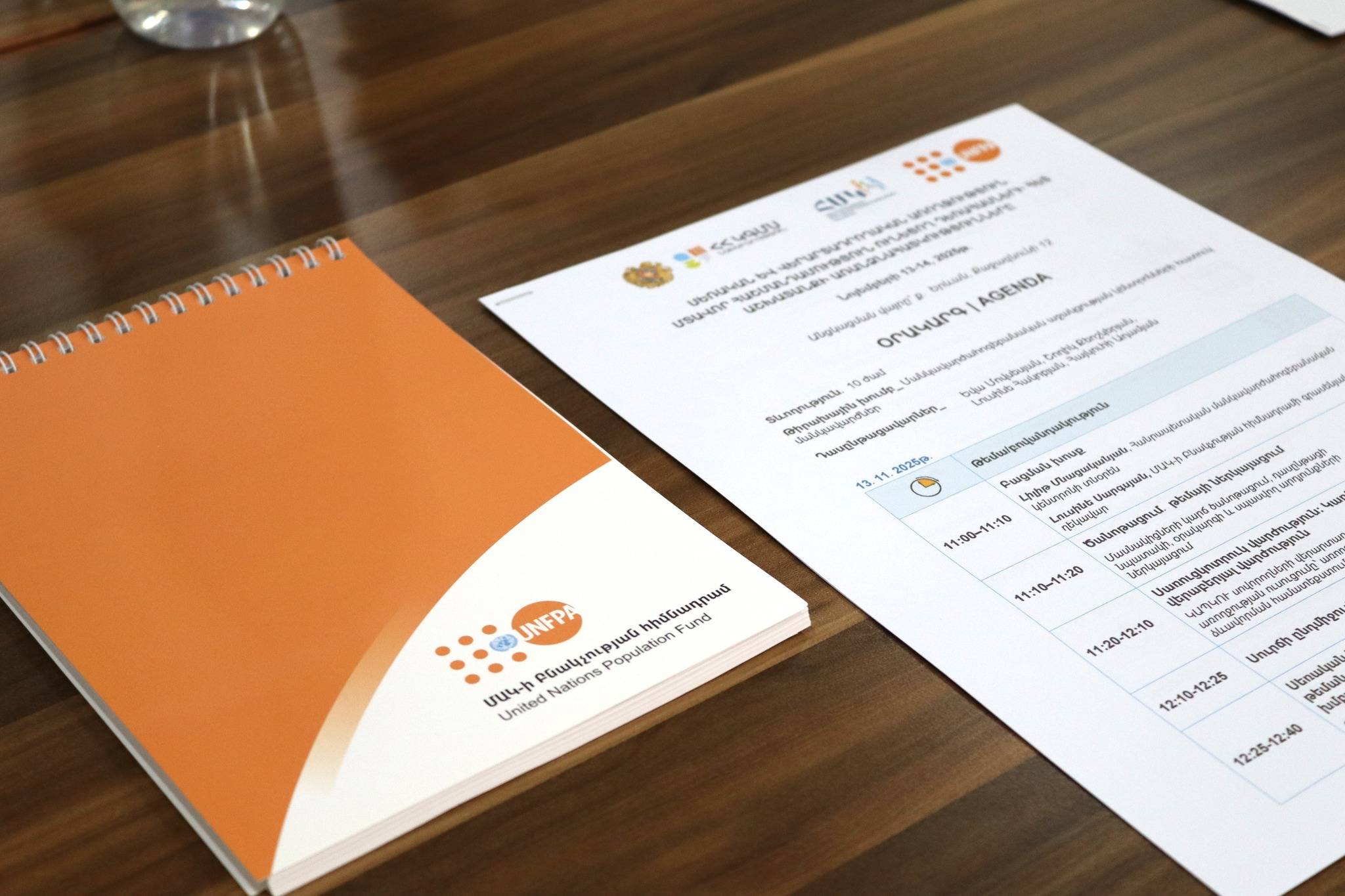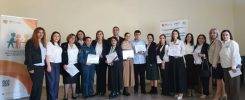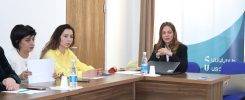In cooperation with the Republican Pedagogical-Psychological Center and the United Nations Population Fund (UNFPA) in Armenia, a two-day training course was held on November 13-14, 2025, on the “SEXUAL AND REPRODUCTIVE HEALTH: FEATURES OF WORKING WITH YOUTH WITH INTELLECTUAL DISABILITIES” topic.
The Course was designed for special educators at Territorial Pedagogical-Psychological Support Centers. The aim was to contribute to the development of the specialists’ abilities to organize accessible and adapted training on topics related to sexual and reproductive health for students with intellectual disabilities.
The trainers were Eva Movsesyan, Child and Adolescent Health and Development Projects Coordinator at Arabkir Medical Centre, Shoghik Keoshkeryan, Lecturer and Academic Coordinator at the American University of Armenia, Inclusive Education and Mentoring Expert, Trainer, Haykuhi Adamyan, RPPC Deputy Director, and Lusine Hakobyan, Methodologist-Trainer at the Training and Methodological Support Department, Special Educator.
Director of the Republican Pedagogical-Psychological Center Lilit Mnatsakanyan and Head of the UN Population Fund Lusine Sargsyan delivered welcome speeches.
Welcoming the participants, RPPC Director attached importance to the activities carried out towards youth sexual education, particularly considering the relevance of the issue in the context of a safe and secure educational environment.
The trainers addressed key topics related to youth sexual education, such as teaching reproductive and sexual health to students with special educational needs in the context of ensuring a healthy lifestyle, adapted educational materials developed by experts within the framework of the “Healthy Lifestyle” mandatory group with thematic lesson plans, lesson goals and outcomes, and the physical, psychological and social changes taking place in a child’s life due to the characteristics of youth. Strategies arising from the relevance of the issue and the mechanisms for their application were presented, focusing on raising the awareness of children and parents as a protective mechanism. The transfer of relevant information and self-management skills to students was also emphasized.
In this context, the specifics of the perception of students with intellectual disabilities and the difficulties caused by their vulnerability were discussed, considering the assessment of sexual and reproductive health needs as an effective tool for identifying cases and preventing violence.
The trainers presented the structure of the sexual and reproductive health assessment toolkit, the principles of its application, its role in the individual education planning process, as well as the connection between assessment results and the IEP.
The Training was accompanied by interactive workshops, video screenings, practical activities, and Q&A sessions, during which the participants shared their observations and viewpoints formed through their professional experience. The Meeting concluded with constructive discussions, enriching the participants’ professional toolkit with skills aimed at ensuring a safe and secure educational environment.
17.11.2025

